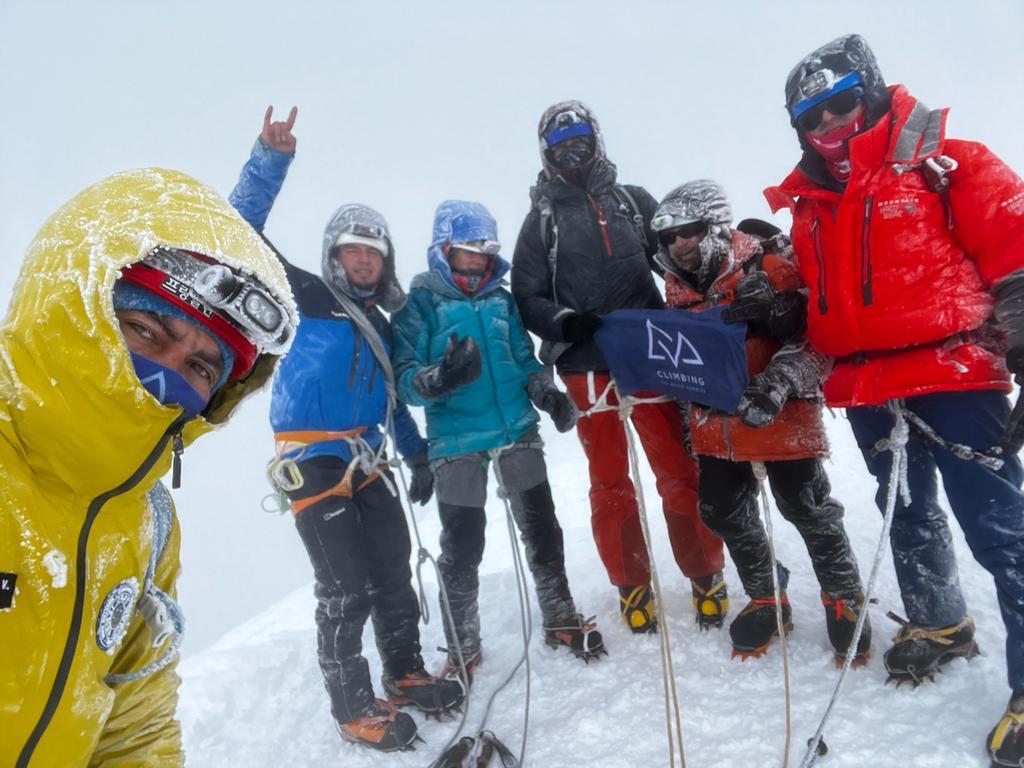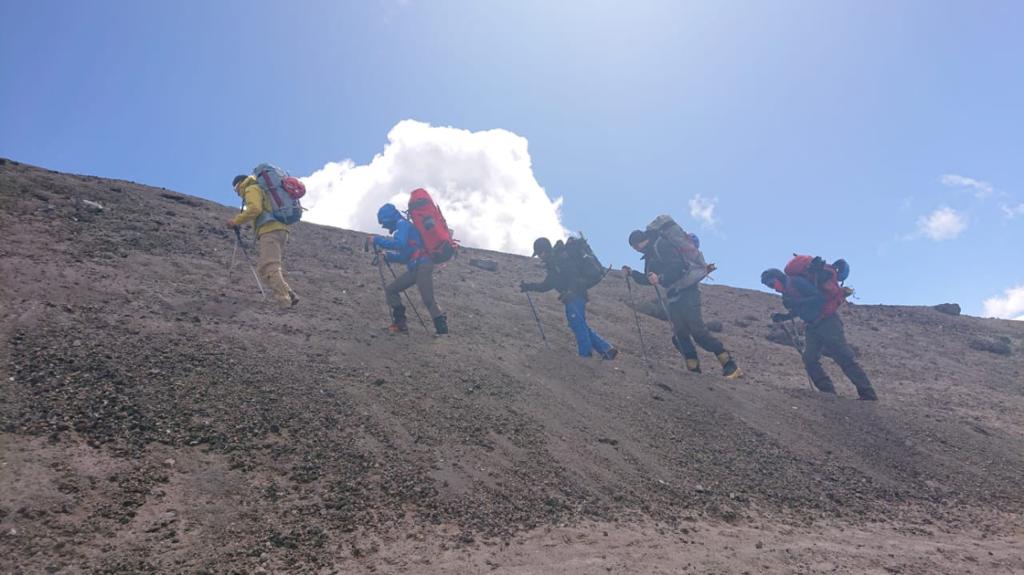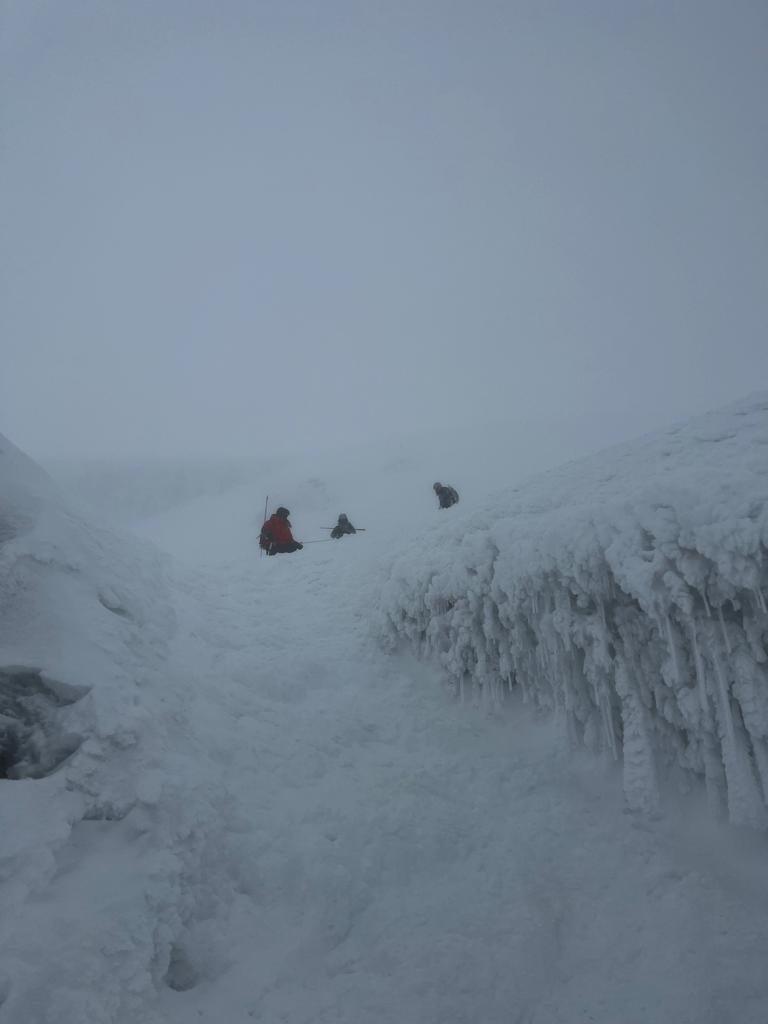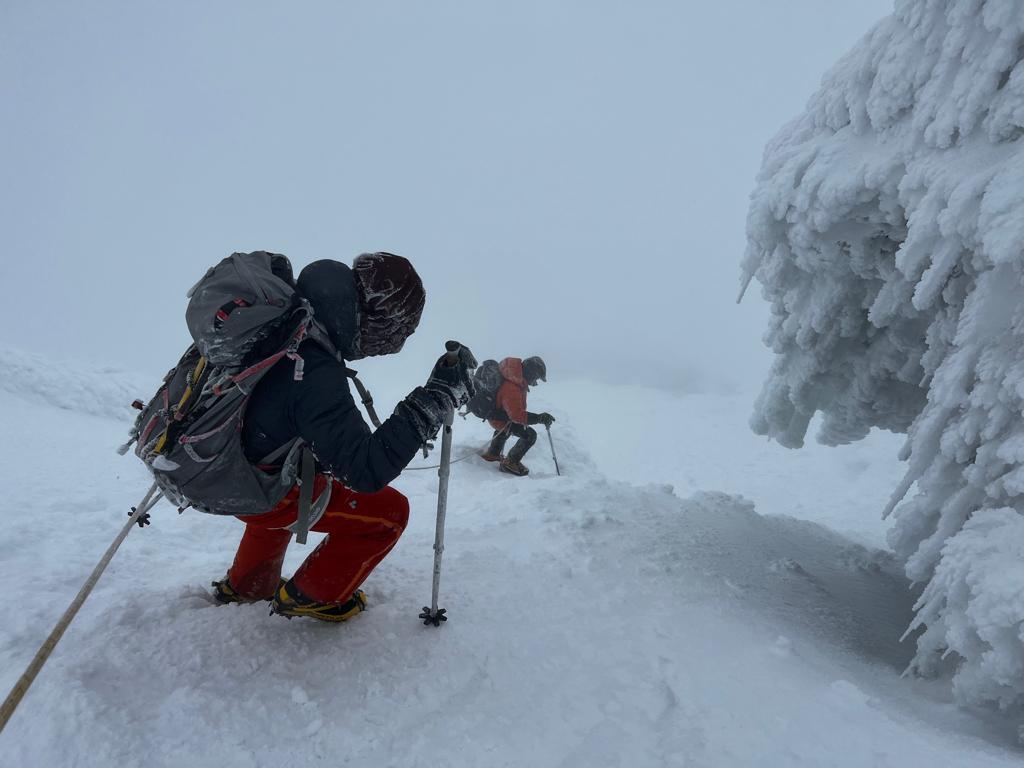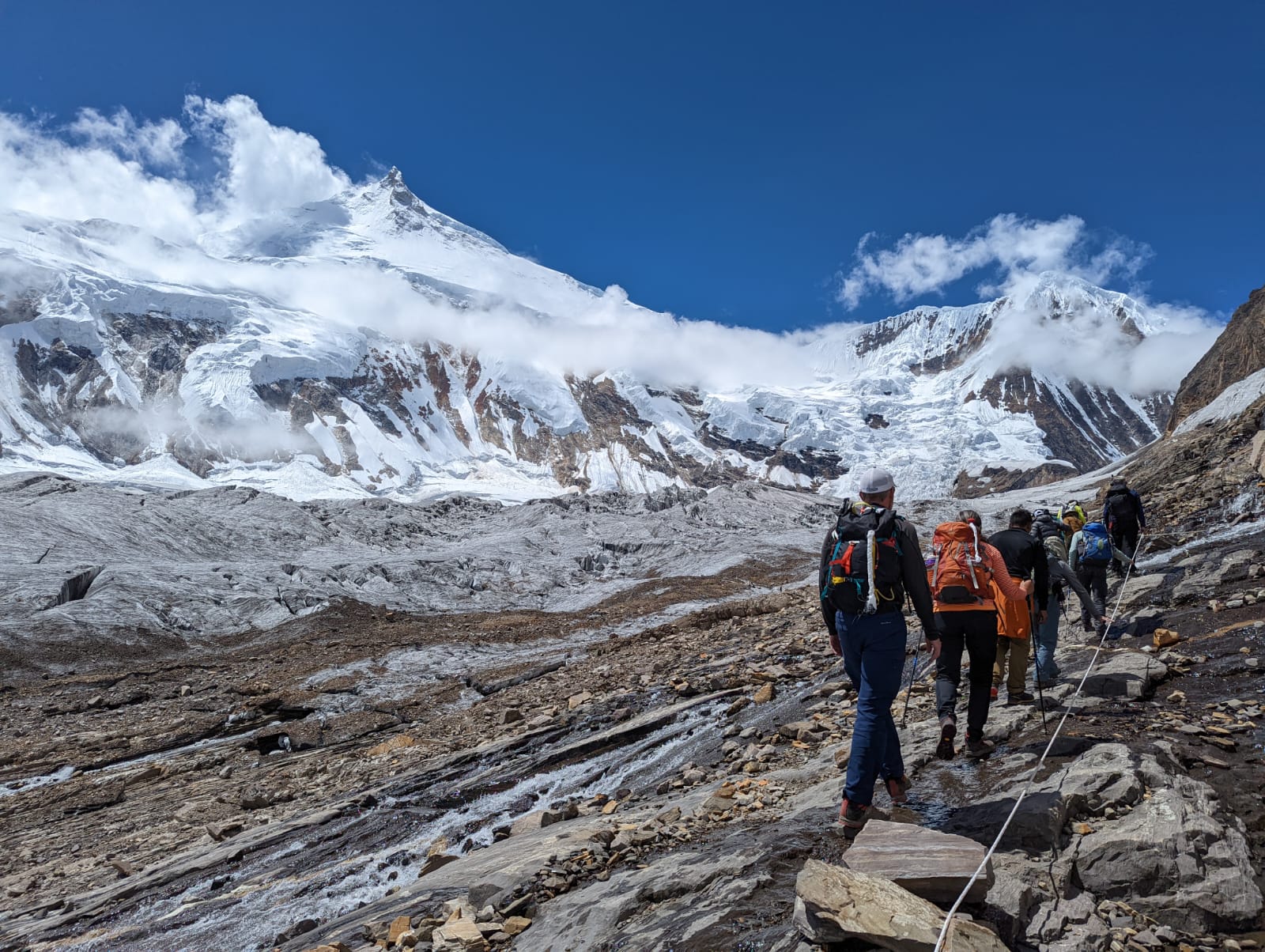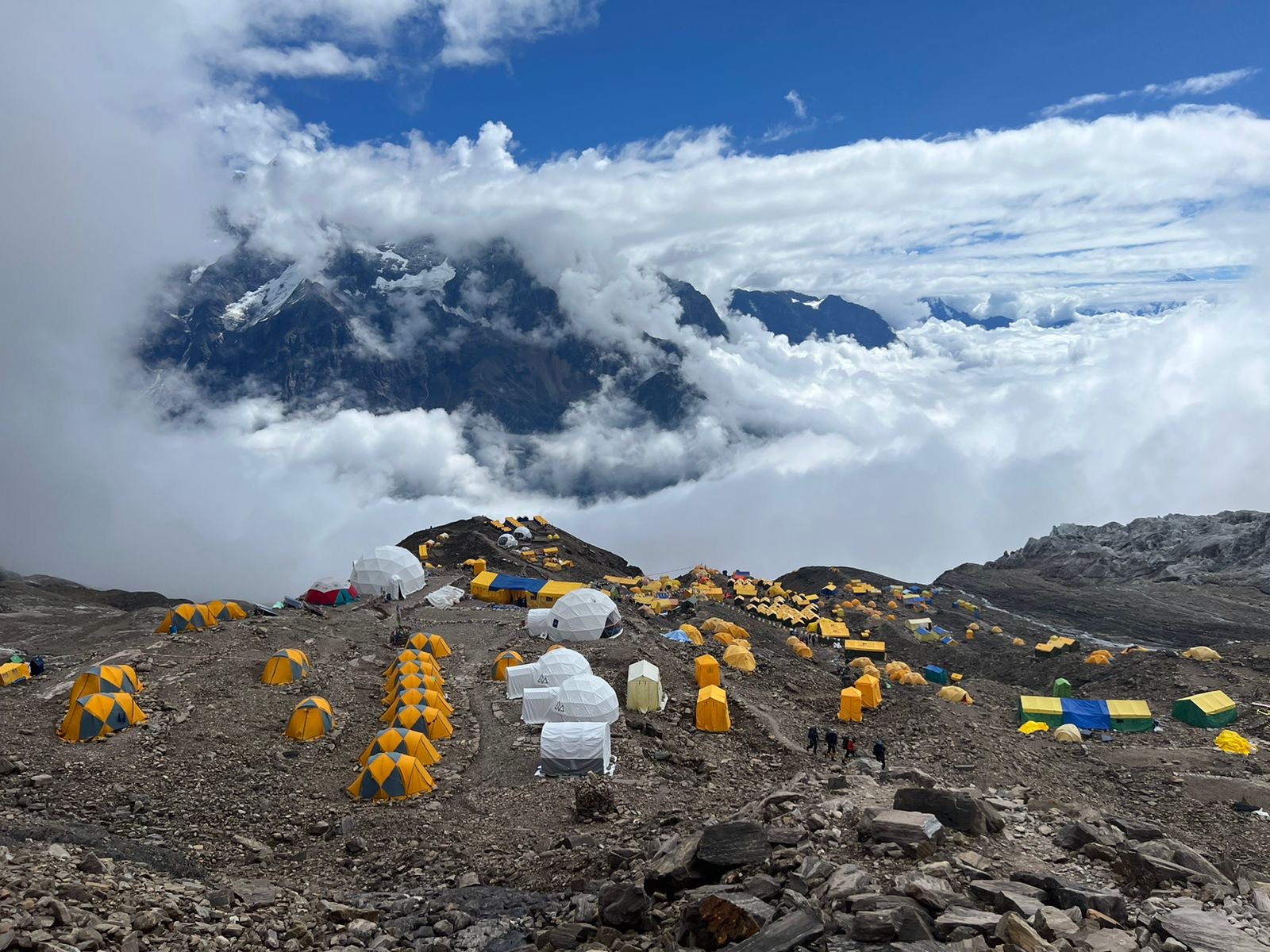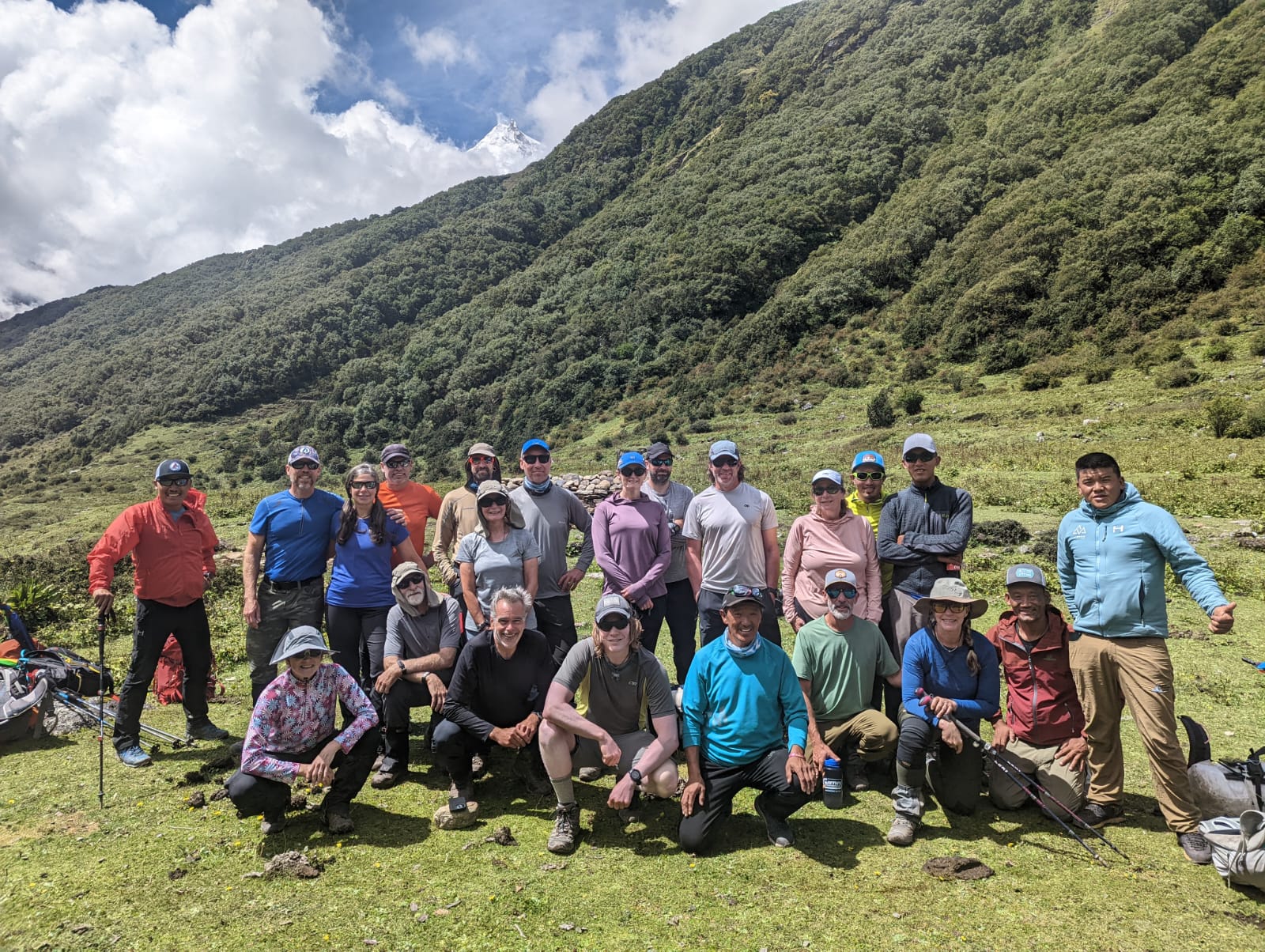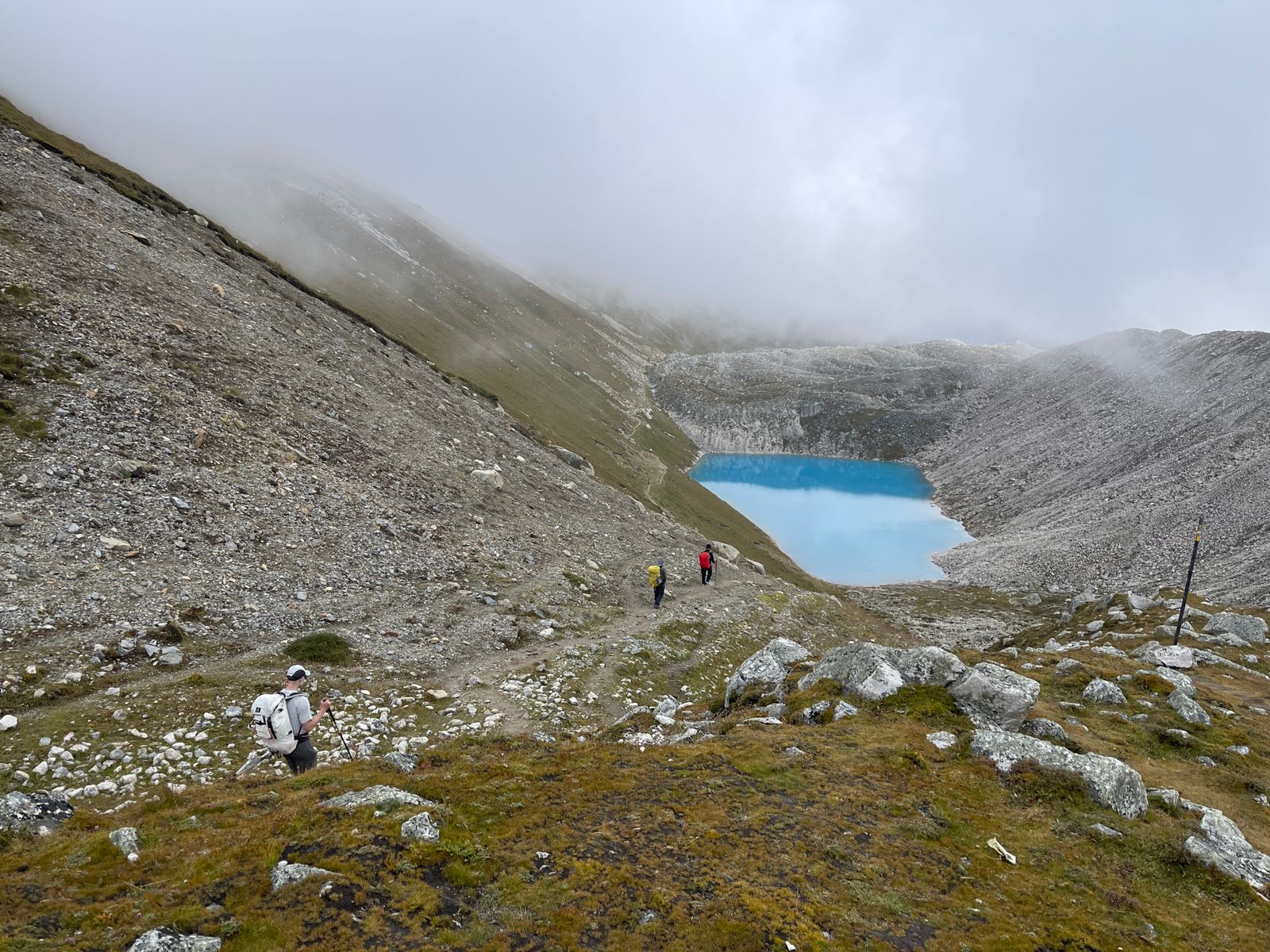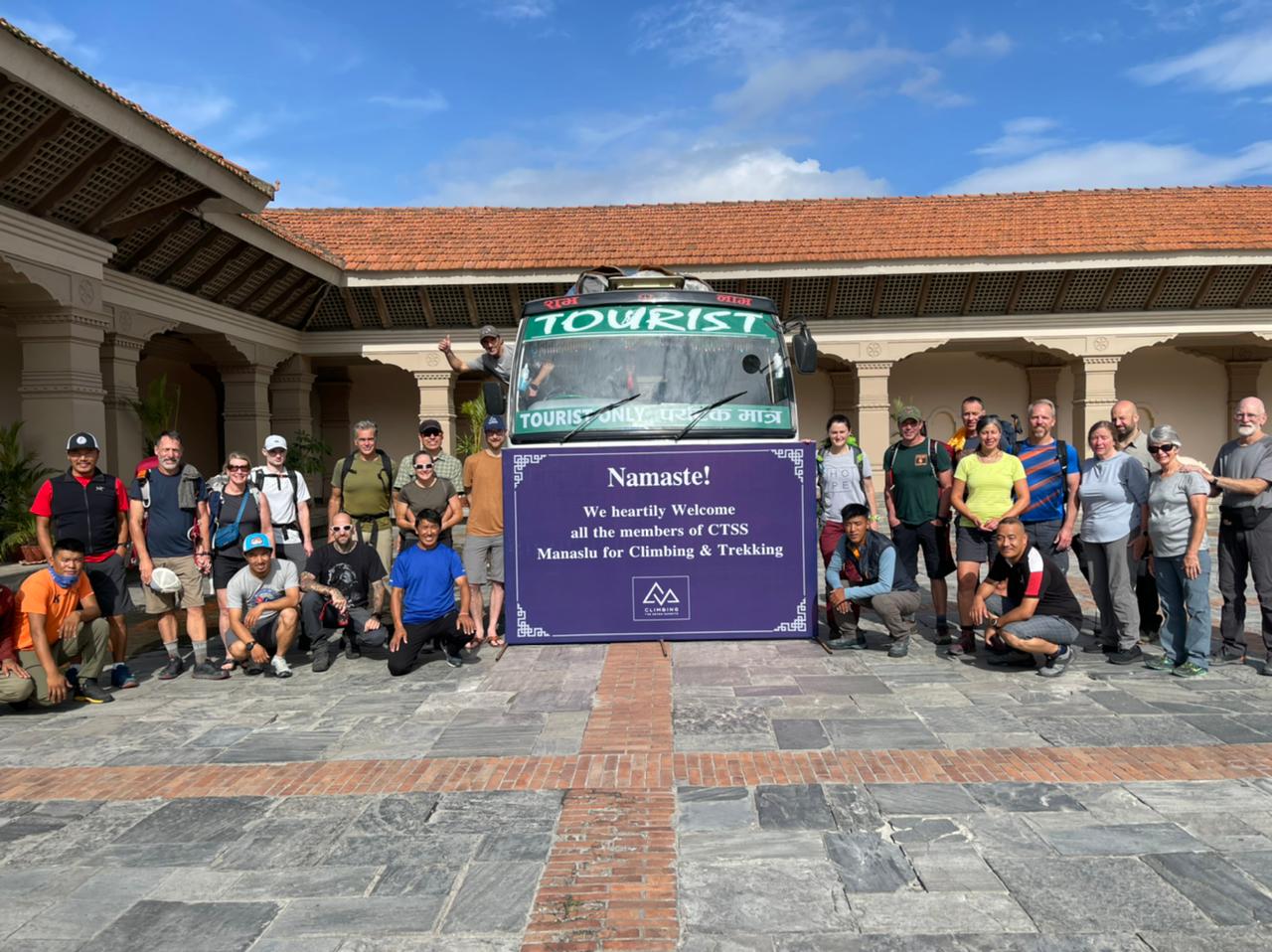Rest Easy on Manaslu
The CTSS Manaslu team has been very active over the last few days.
The 9th of September was a very Auspicious day on the Tibetan Calendar so the team hosted a Lama from Samaguan to perform the traditional Puja Ceremony. The ceremony lasted the whole morning and finished with a traditional celebratory Sherpa Dance.
After the ceremony our climbing team bid farewell to the Trekking team who descended back to Samaguan after 3 nights in basecamp. The Trekking team will continue to explore the valleys, lakes, and monestaries around Samaguan for the next few days before helicoptering back to Kathmandu for a dramatically beautiful finish to their time in Nepal.
Following the Puja our climbing team had an afternoon of rest and preparation for the first foray onto the mountain. On September 10th they departed basecamp after an early breakfast to make their way up to Camp 1. Weather held clear for the morning, giving rise to some heat crossing the lower glacier, but the whole team made it to Camp 1 in good fashion. After spending a bit of time at Camp 1 for acclimatization the team descended back to basecamp and was met at Crampon Point by hot tea brought up from basecamp - not a bad way to break up a long day!
Today the team is enjoying a well deserved rest day as their bodies recover and acclimatize. This follows the tried and true “climb high, sleep low” method that makes our expeditions so successful.
Looking forward the plan is another rest day tomorrow (September 12th) as the team works around a bit of weather passing through the area. On the 13th they’ll head back to Camp 1 for the night and, weather permitting, climb to Camp 2 on the 14th before descending back to basecamp on the same day.
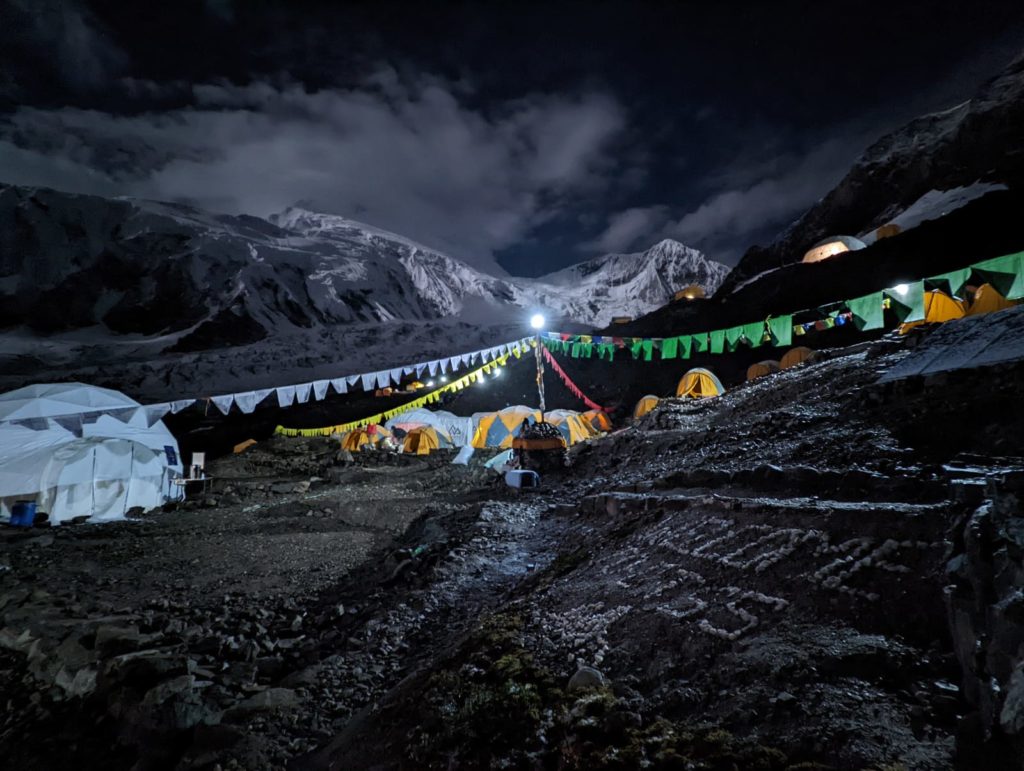
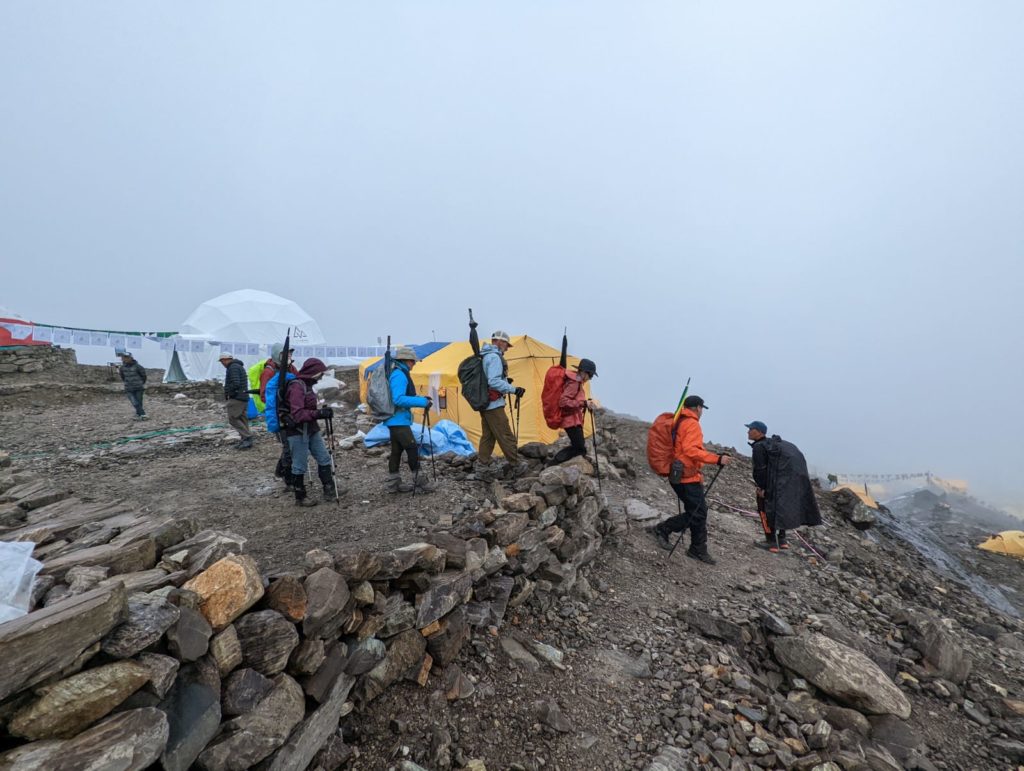
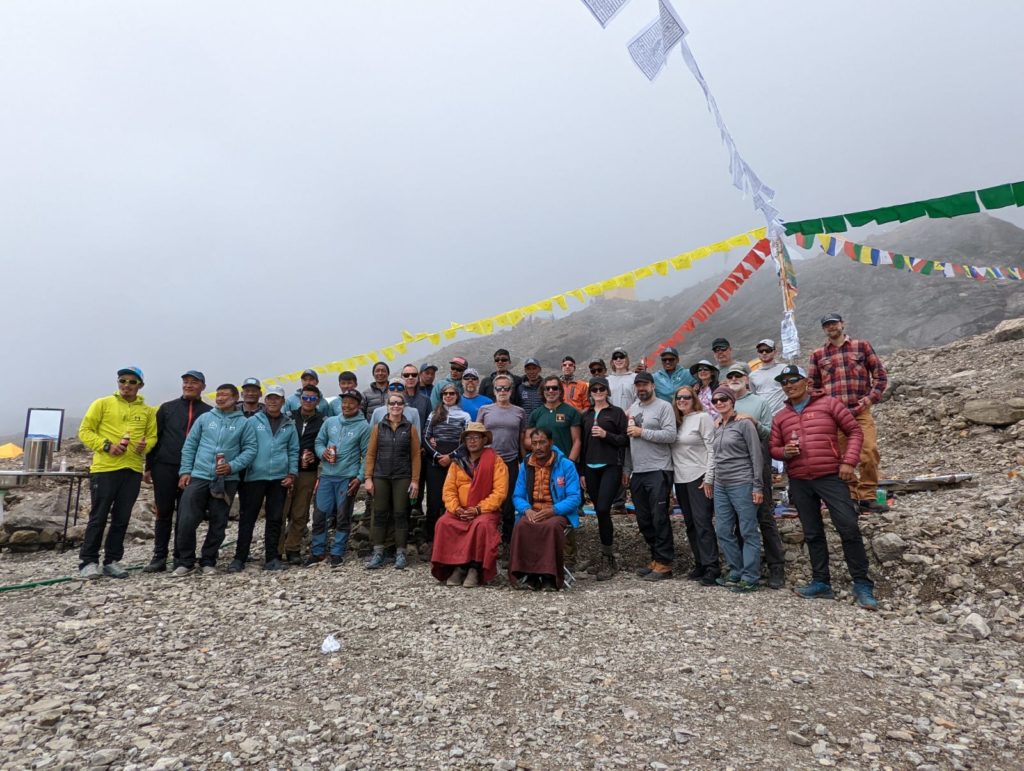
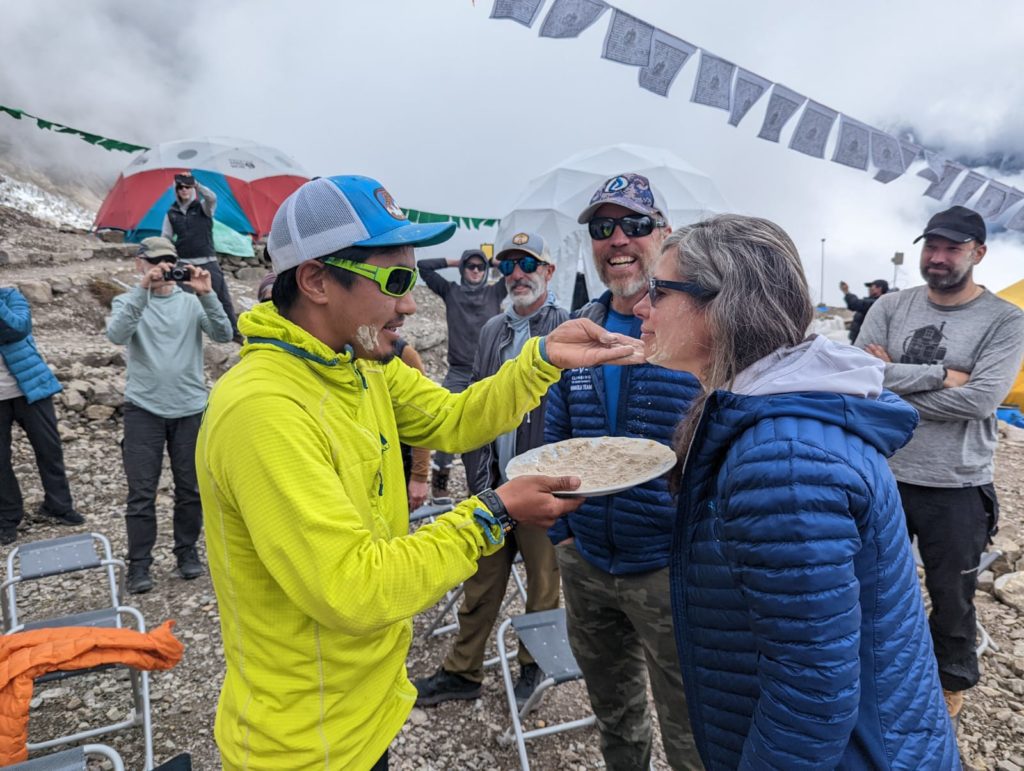

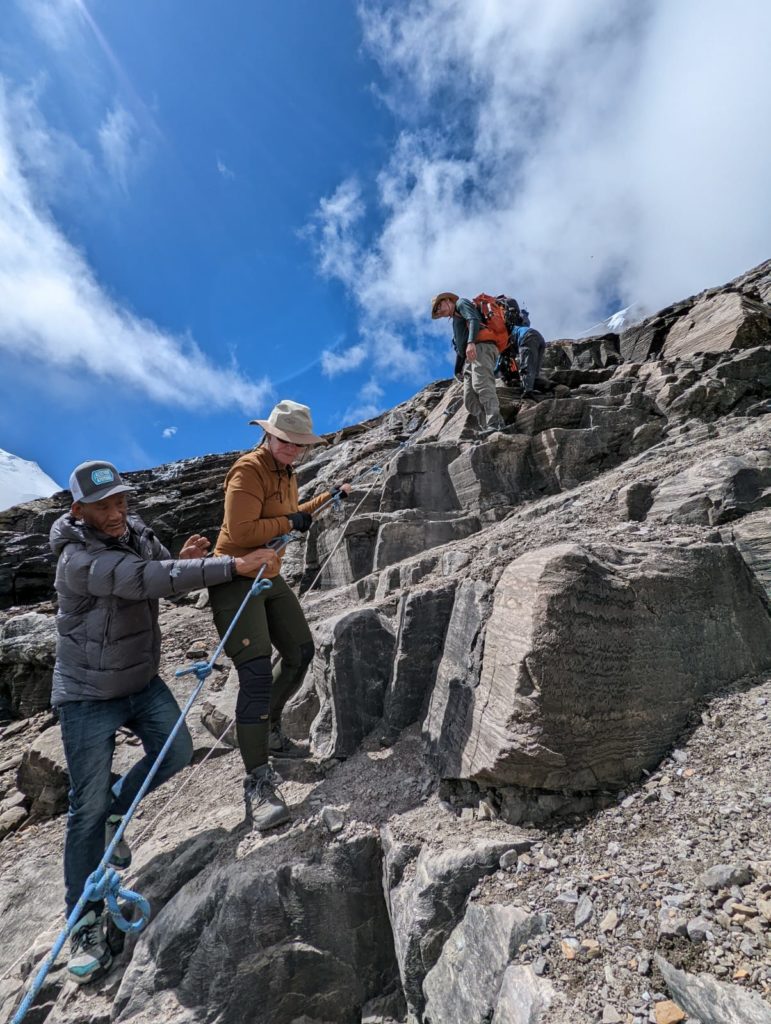
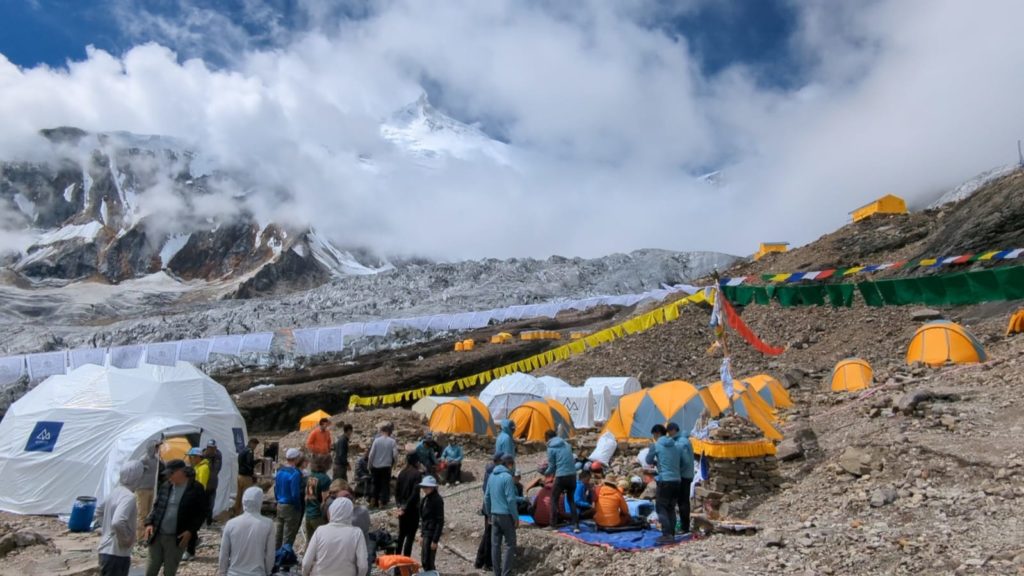
Settling in at Manaslu Base Camp
Our Manaslu team is nicely settled into Base Camp with just one member still waiting on missing baggage from the flights, before making their final move into Base Camp.
In advance of the teams arrival our amazing Nepalese team cleared and levelled the area for each tent and set up not one, but two, massive dome tents (one for our dining room, and one for our hang out tent) as well as each team member's spacious private tent and our Manaslu Exec teams personal, heated domes.
Since arrival the team has rolled straight into the expedition, training on fixed lines yesterday focusing on smooth transitions around anchors and other climbers as well as reviewing the standard climbing systems that maintain the chain of safety while in the mountains.
Today the team took a hour acclimatization hike to Crampon Point at 17,100ft (5,200m) Crampon Point is where climbers heading to Camp 1 leave the rock step behind, don crampons and start moving on fixed lines across the glacier.
Returning back to camp for a fantastic lunch the rest of the afternoon was free time allowing everyone to rest up.
Tomorrow, September 9th is an auspicious day according to the Tibetan Calendar and our team will be making the most of it with a Puja Ceremony.
Puja ceremonies are a chance to ask for safe passage from the mountain and to celebrate our chance to climb in such an amazing place. Our Puja will be led by a Lama who will make the trek up to Base Camp from the village below. Mountaineering expeditions in Nepal have hosted this Buddhist traditional dating back to the very first exploratory expeditions. After the Puja it is a time of rest and celebration - the team heads to Camp One for their first foray on the mountain in the next day!
All is well in Nepal,
Cheers
CTSS Team

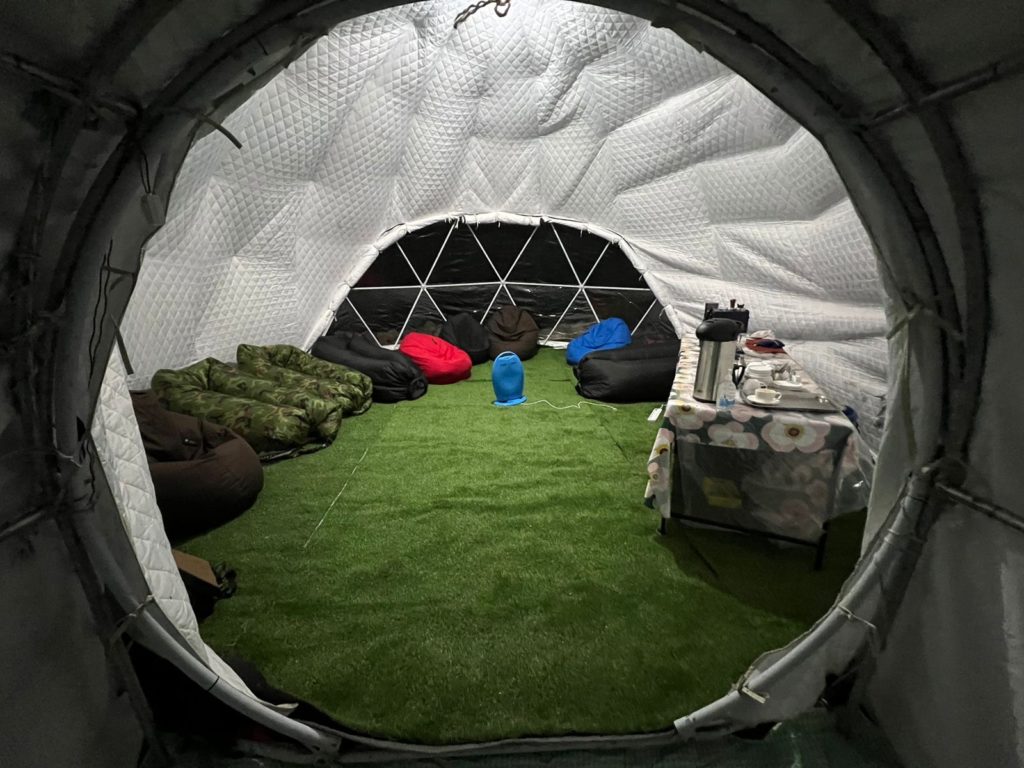
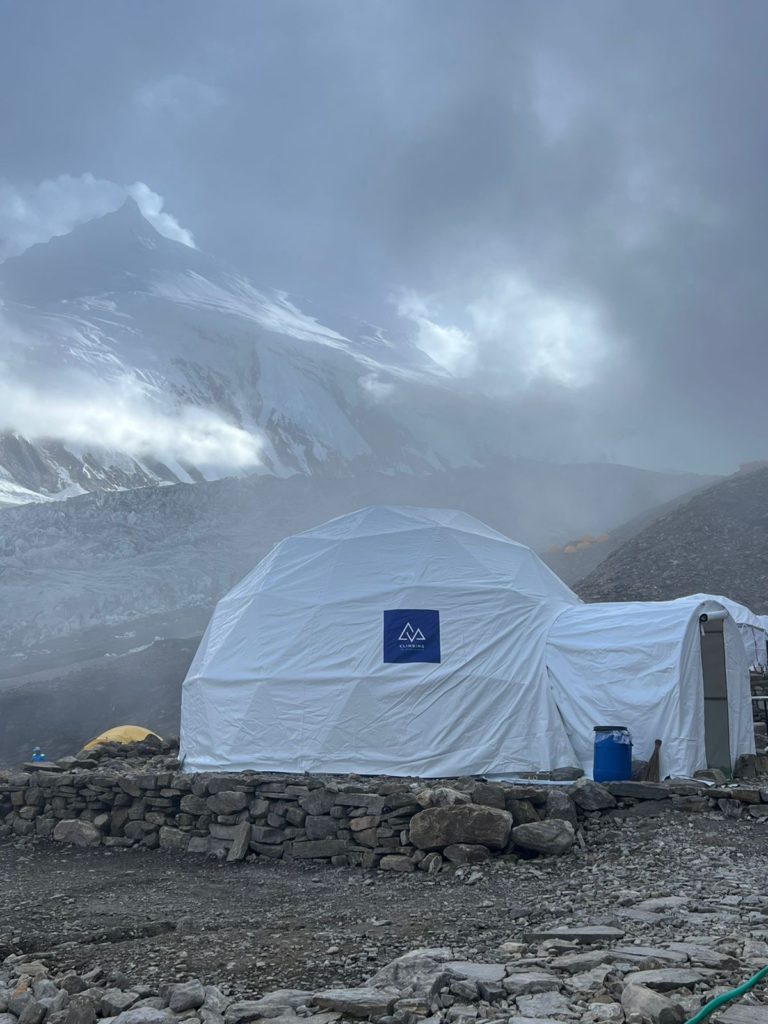

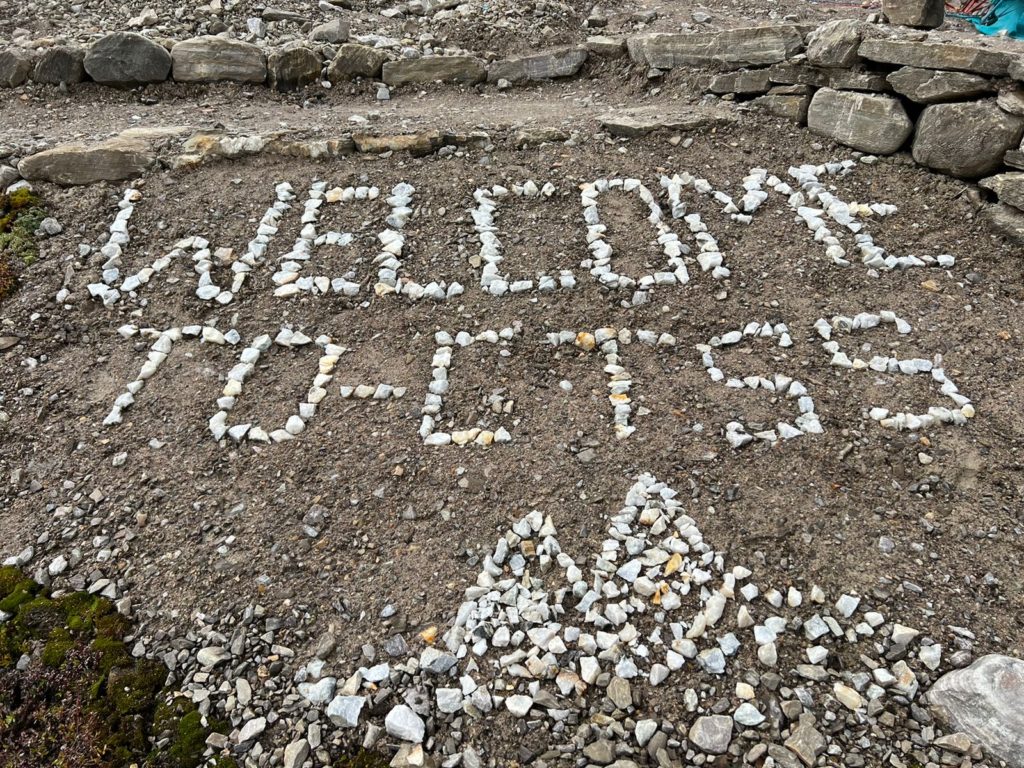
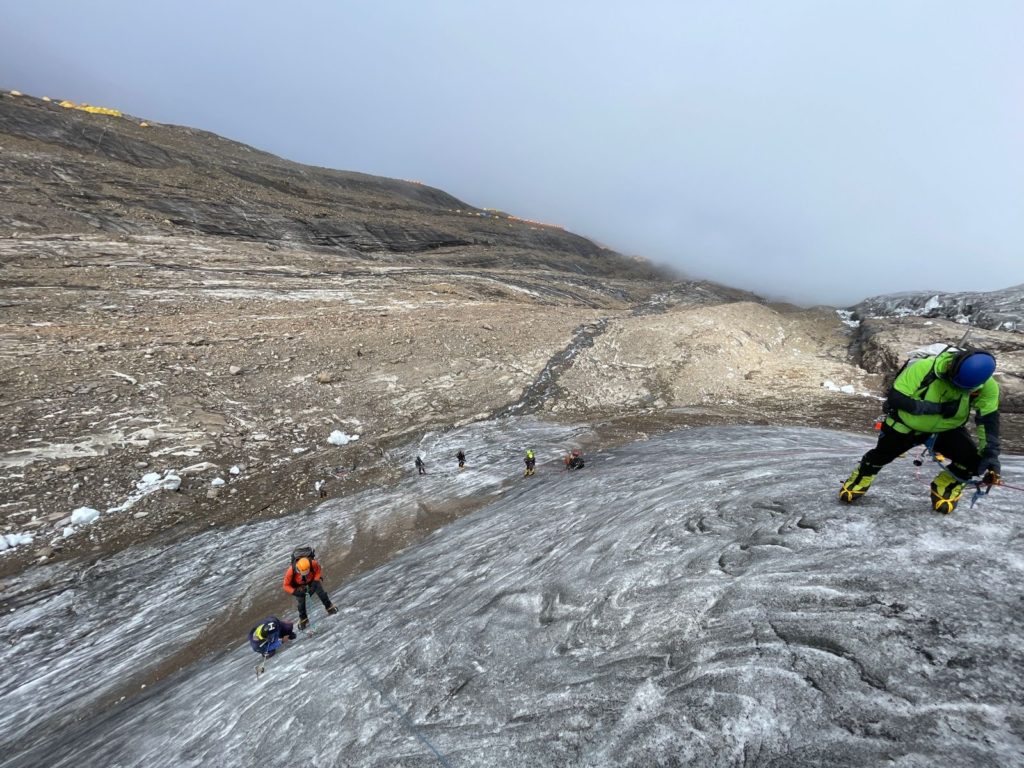
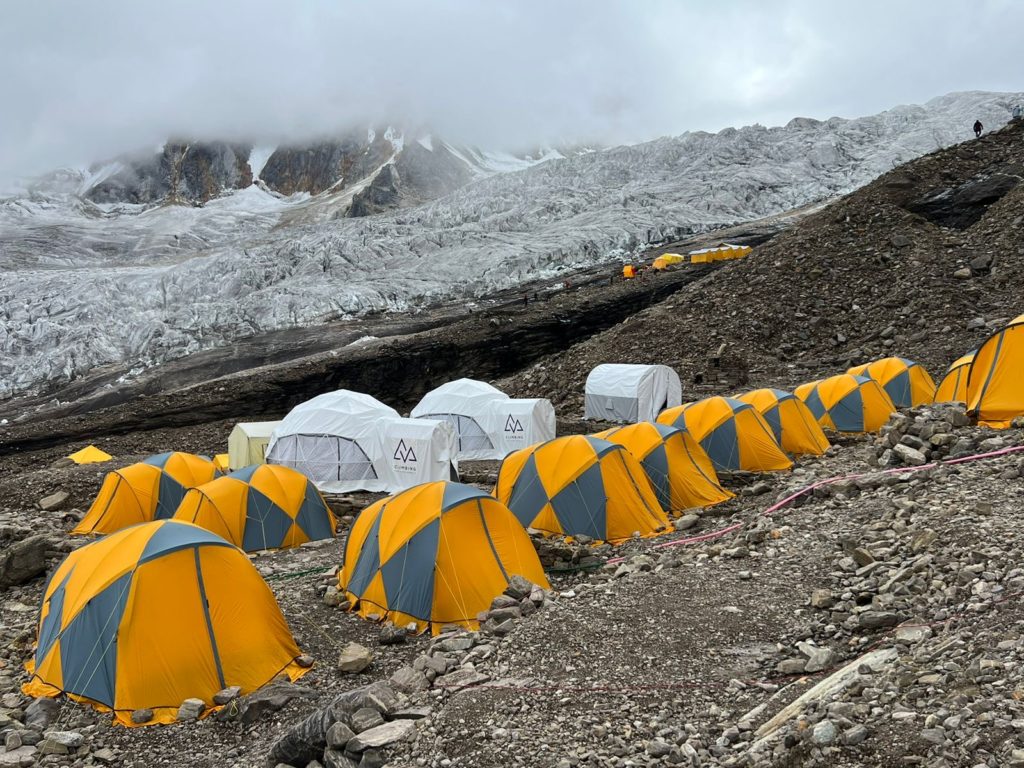
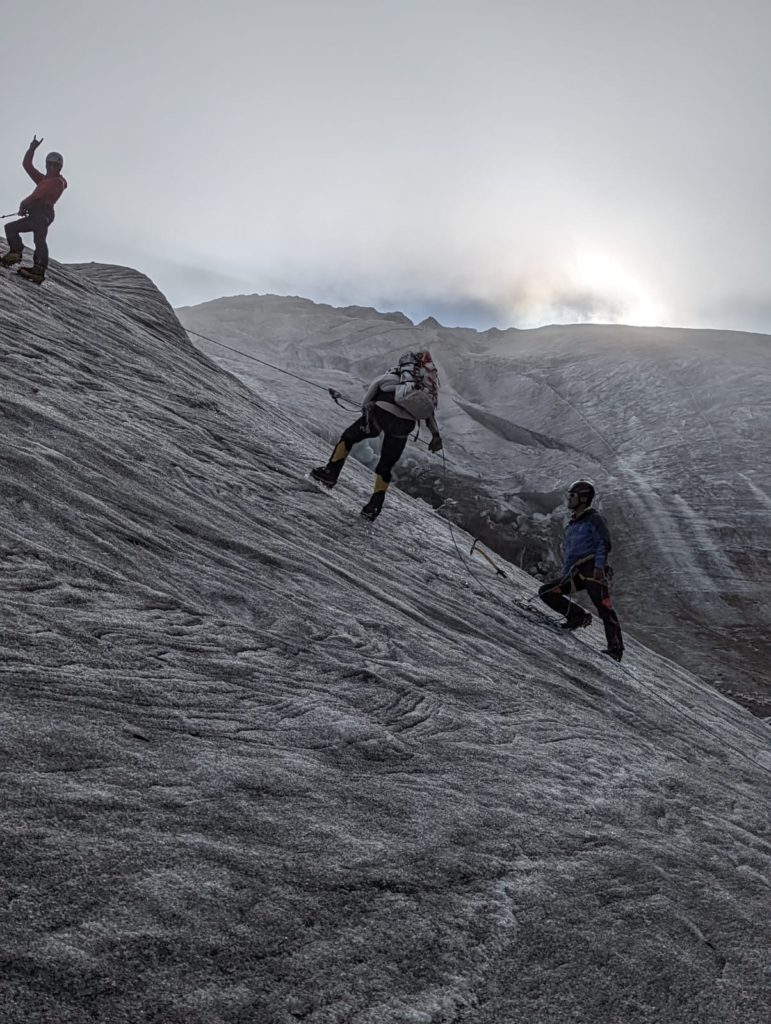
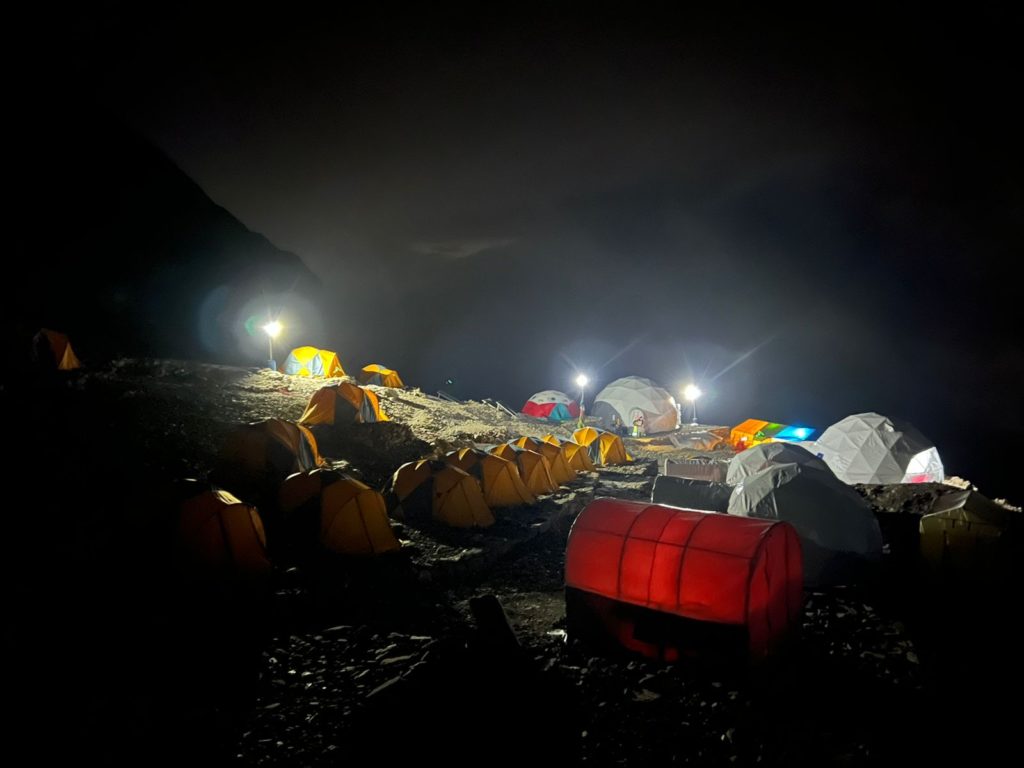
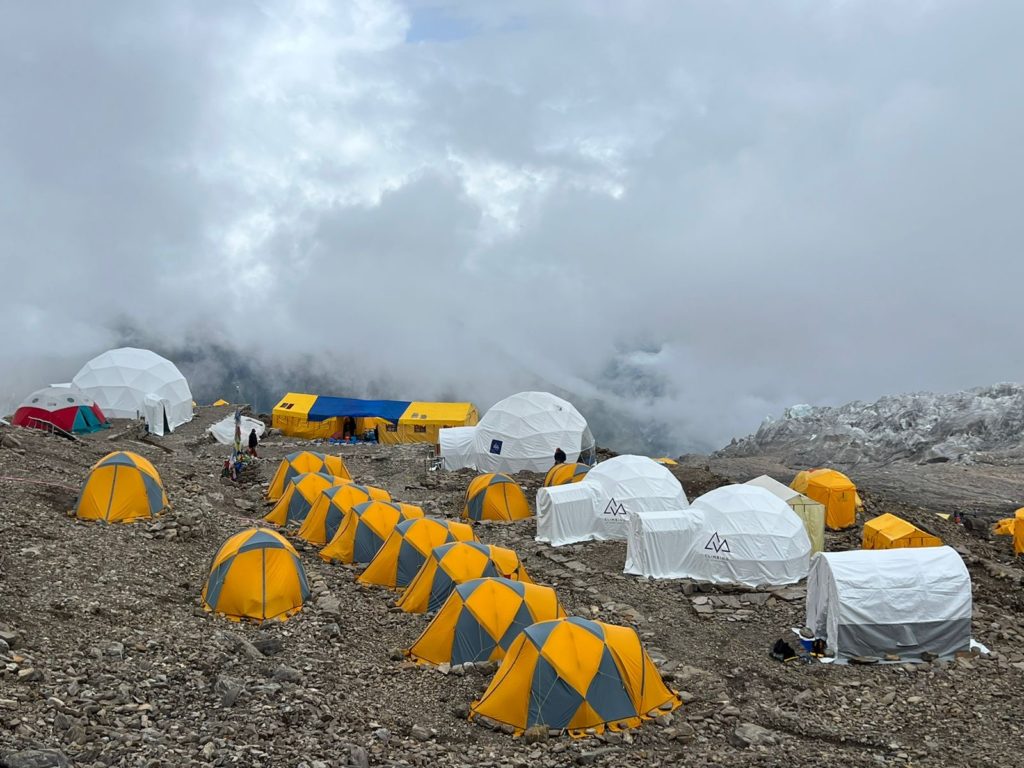
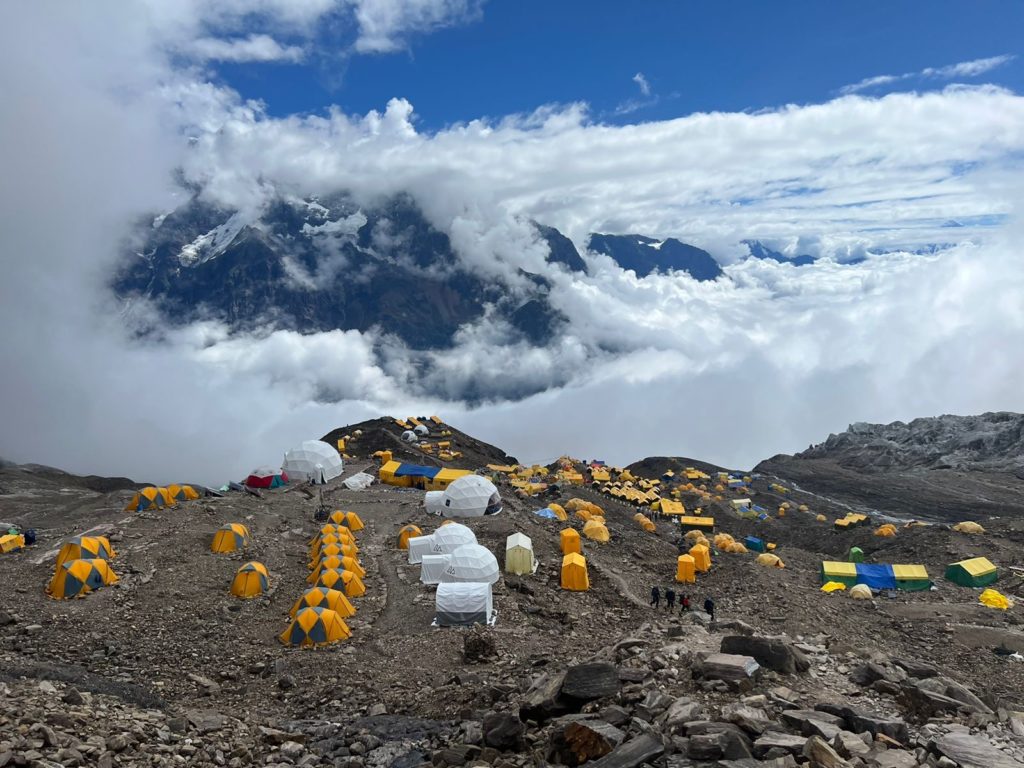


Manaslu Team Heads to Basecamp
Our CTSS 2022 Manaslu climbing and trekking teams have been making excellent progress!
Over the last 6 day’s they’ve trekked up the Dudh Khola river valley up to the incredible Larkya La pass at 16,860 feet (5,138m). Crossing the Larkya La Pass is a fairly arduous day with a 1:00AM wakeup to make sure the team was up and over the pass before any afternoon weather can set in. Descending down to the Budhi Gandaki valley our team rolled into the village of Samdo for a well earned meal and night of rest.
With the hard trekking behind them it was an easy morning walk down to the town of Samaguan, at the base of the valley leading to up Manaslu Basecamp. On the way they got their first glimpse of Manaslu high above the valley floor.
Today the team took a rest and acclimatization day in Samaguan visiting an ancient temple to receive blessings from the Lama for a safe climb. Tomorrow the hard work begins again with a steep ascent into Manaslu Basecamp.
On arrival they’ll be greeted by our signature Big Dome dining tent and the best basecamp accommodations of any team on the mountain. From our professional chefs to the espresso maker in the dining area we have made sure that our team is able to rest and fuel into top shape for their upcoming climb.
While the Climbing Team is starting to set their sights on their main objective our Trekking Team is looking forward to living at basecamp for a few days before returning to the lush valley below to continue exploring the incredible culture surrounding Samaguan.
Best of luck to our teams as they roll into basecamp tomorrow!
Cheers,
CTSS Team
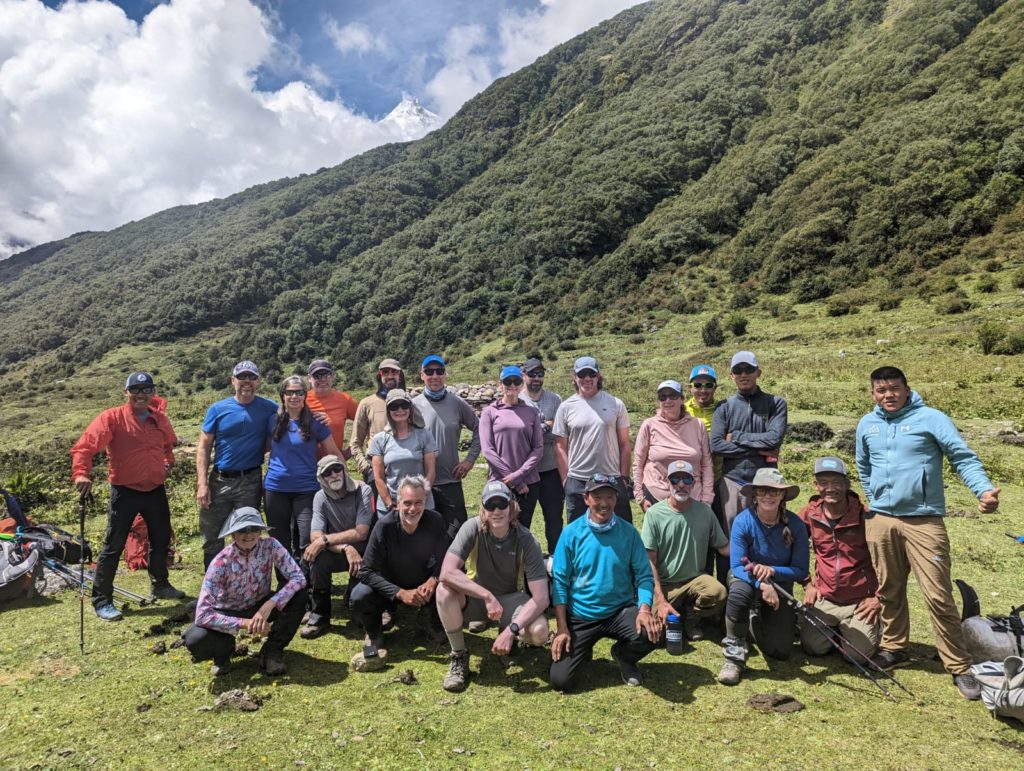
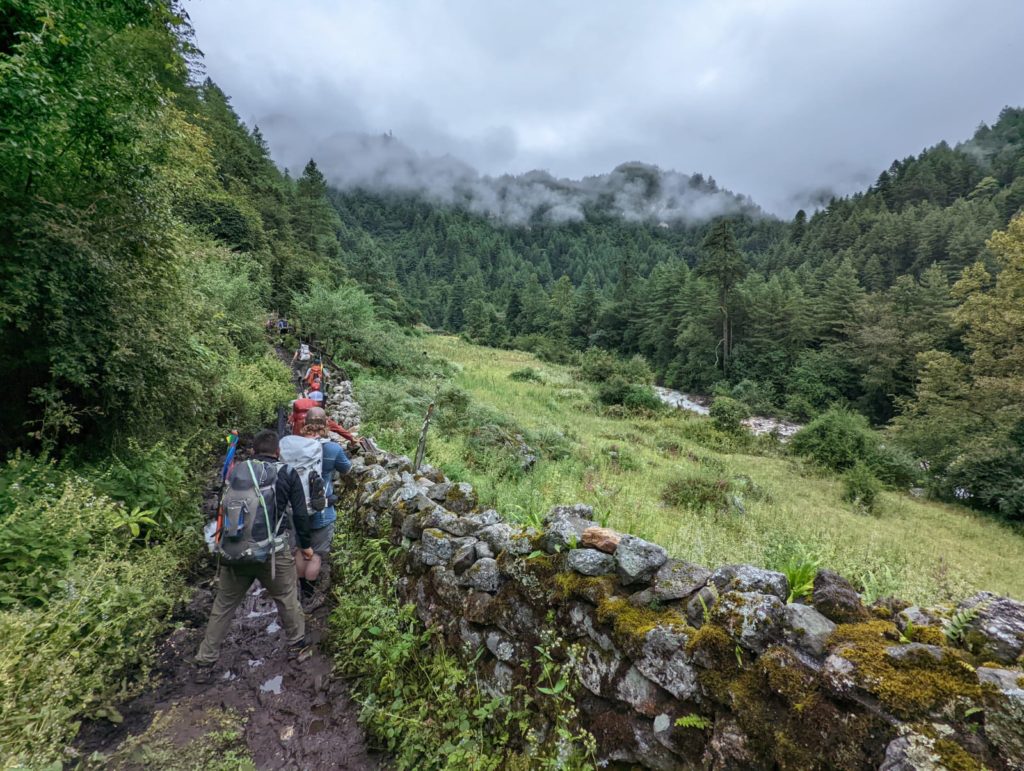
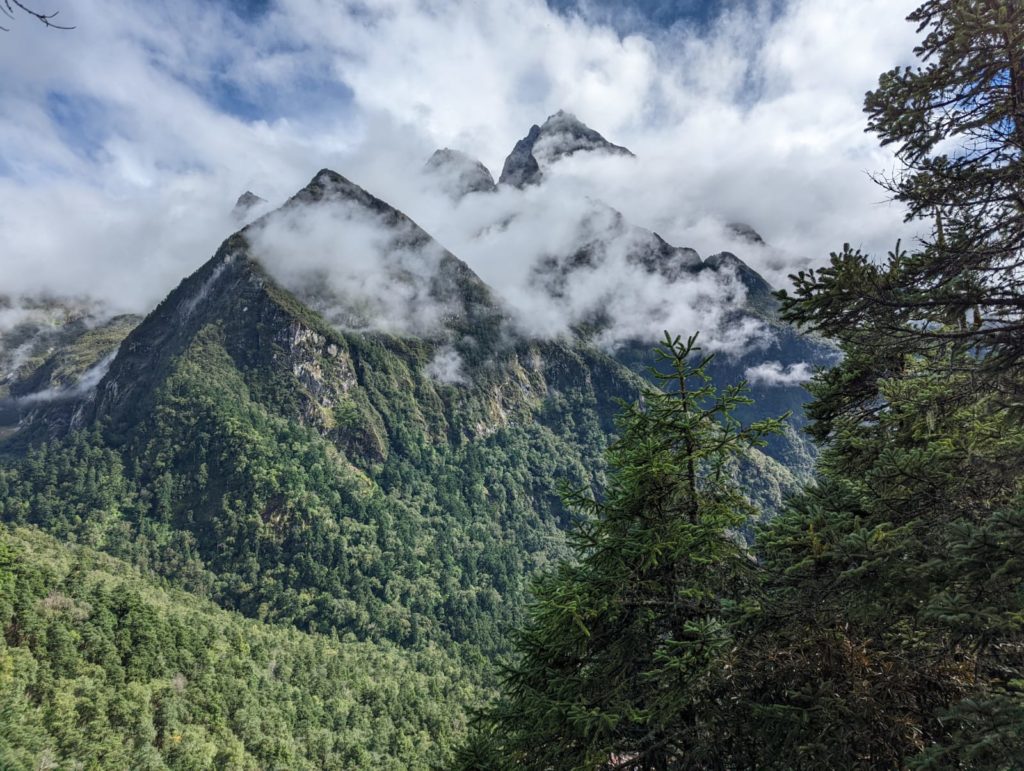
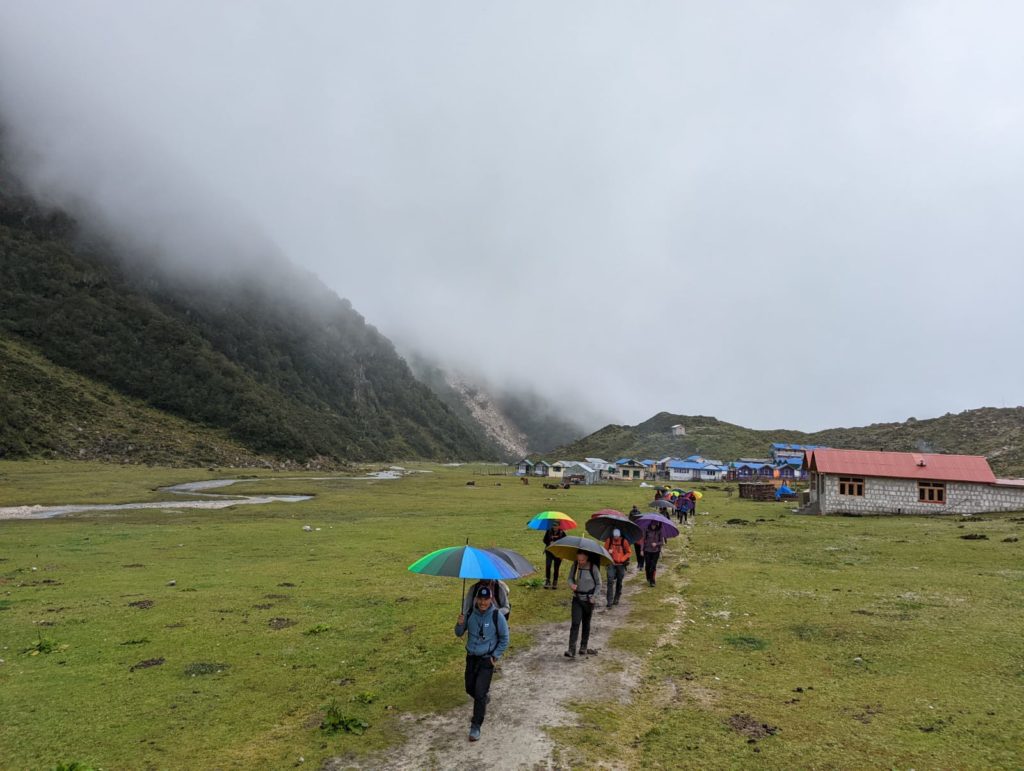
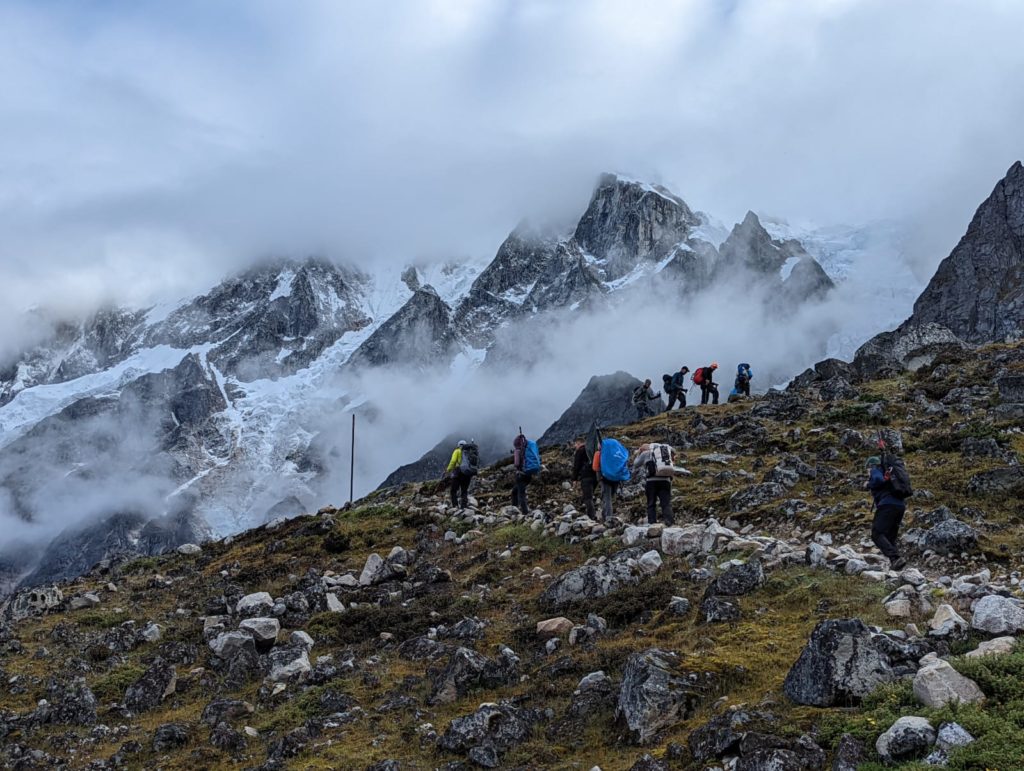
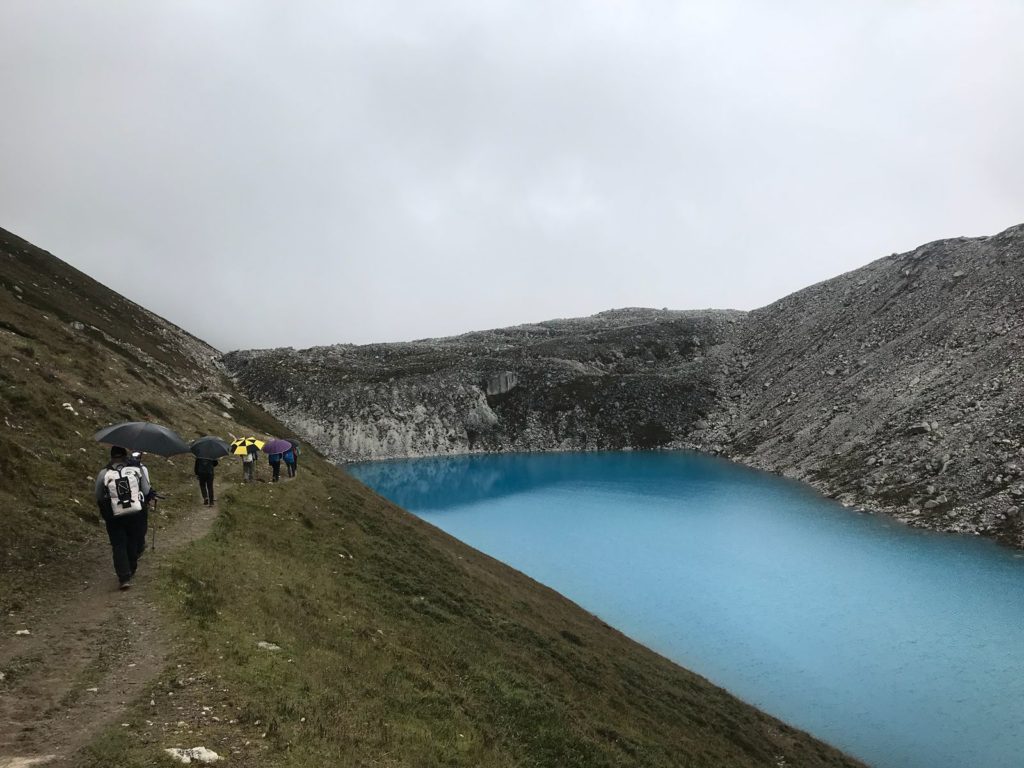
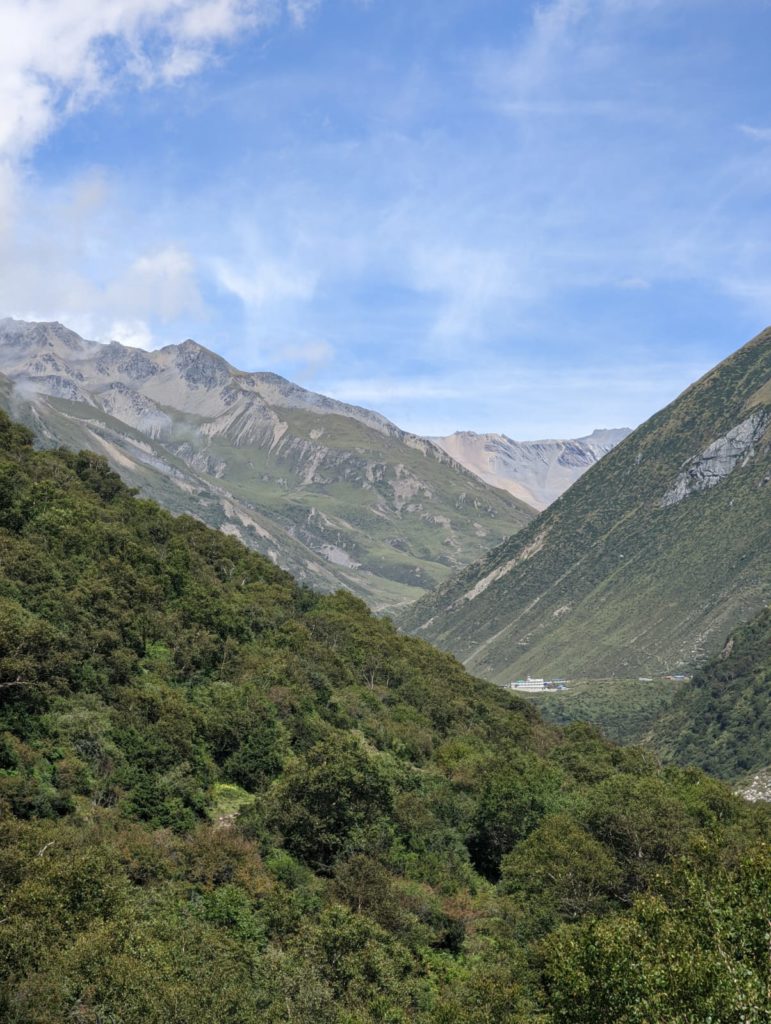
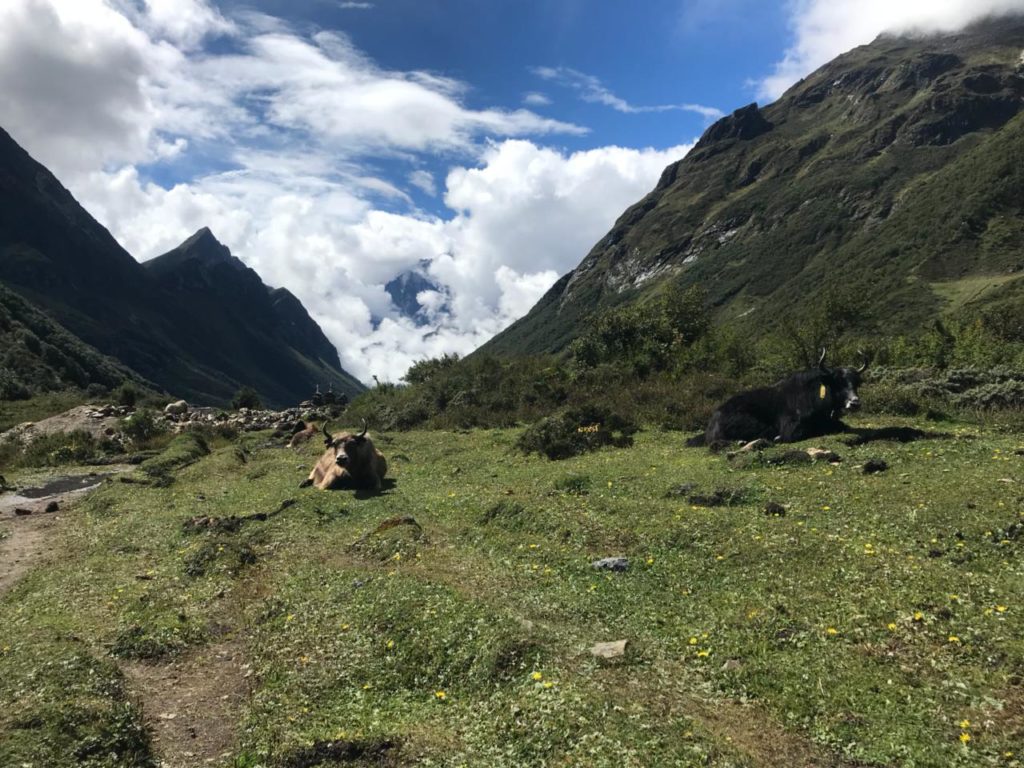
Sando & photos from the trail to Manaslu
The Manaslu climbers and trekkers are doing great.
Yesterday they had an alpine start (leaving the teahouse at 2am for to cross the Larke Pass (5,106m) to Sando. It was a huge 12-14hr day, with everyone arriving strong and in great spirits. Today is a much shorter day as they move to Samdawa.
The trail is beautiful, lush green which comes with the rain.
All photos care of CTSS Guide Tomi Ceppi
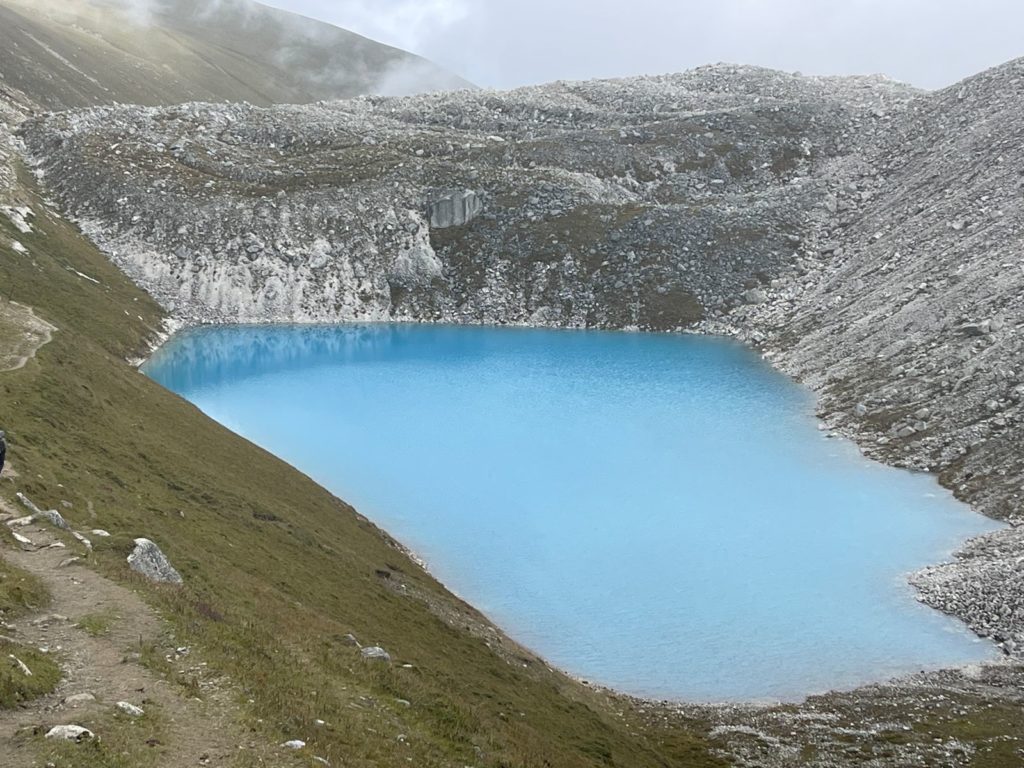
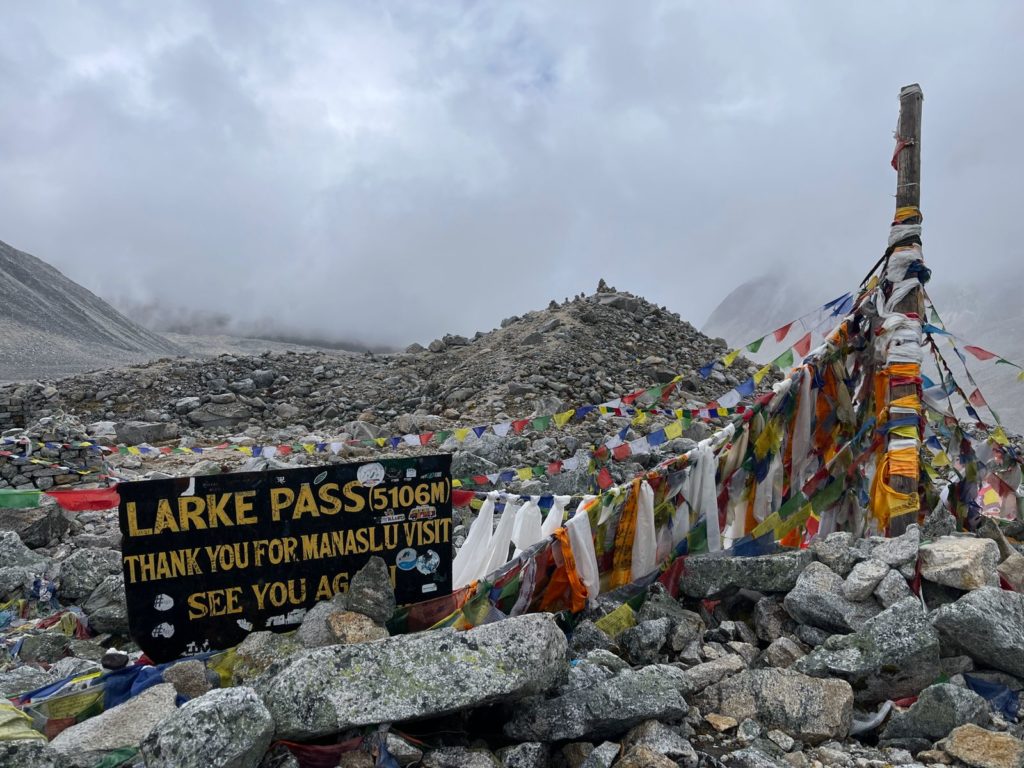
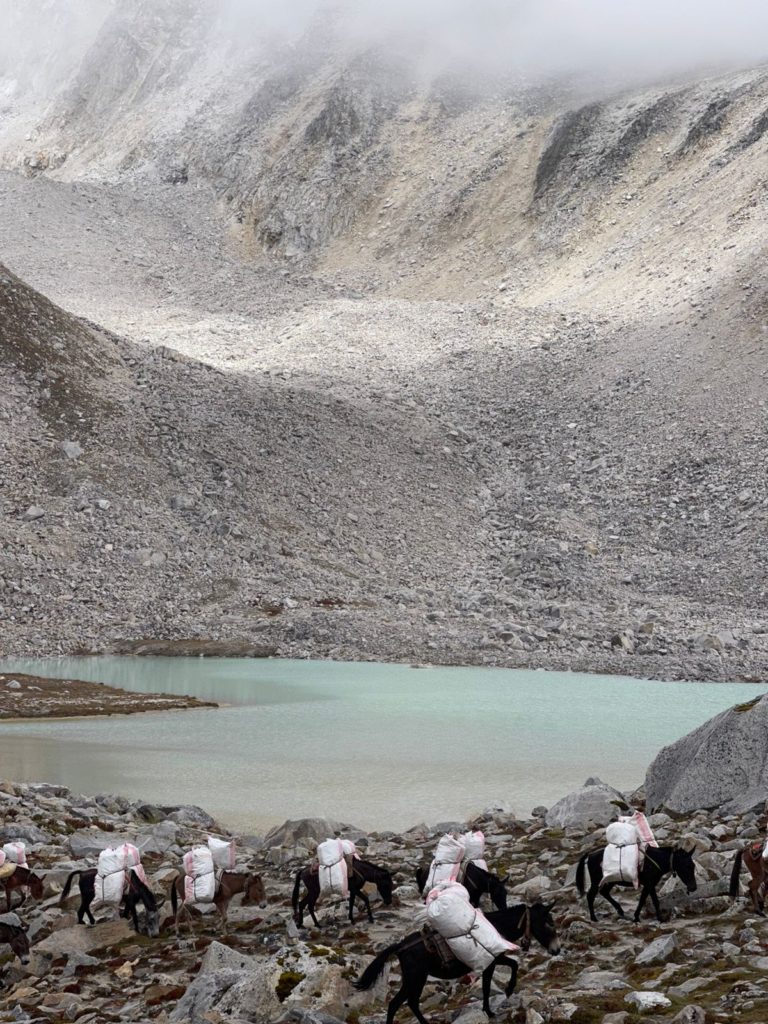 s
s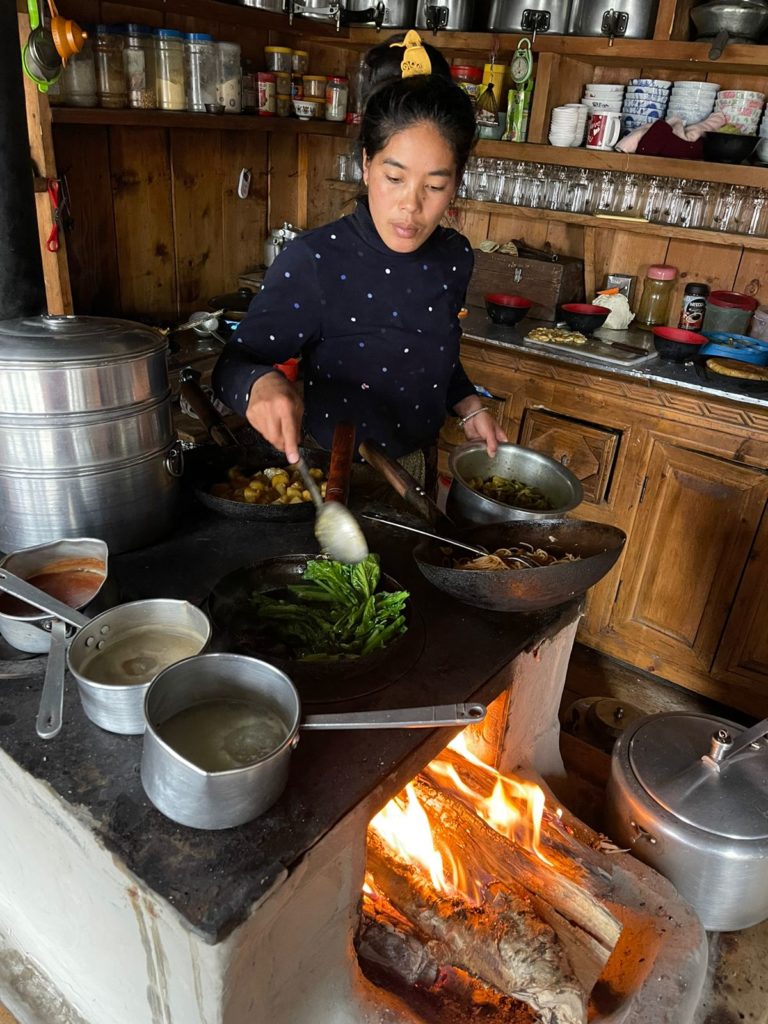
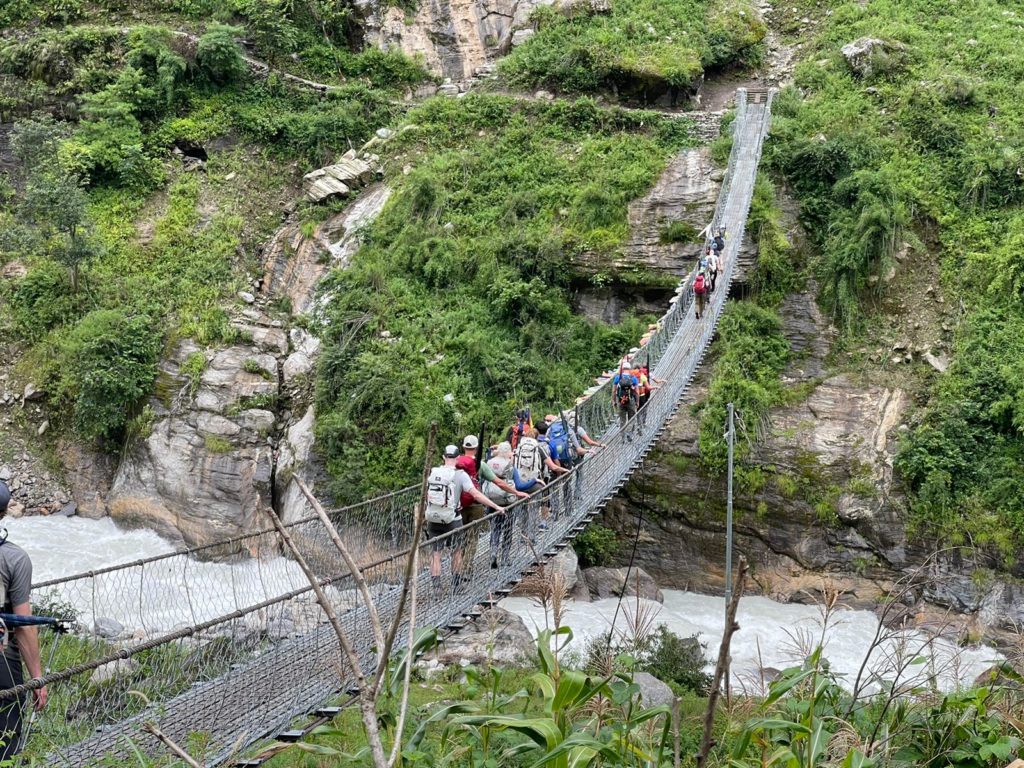
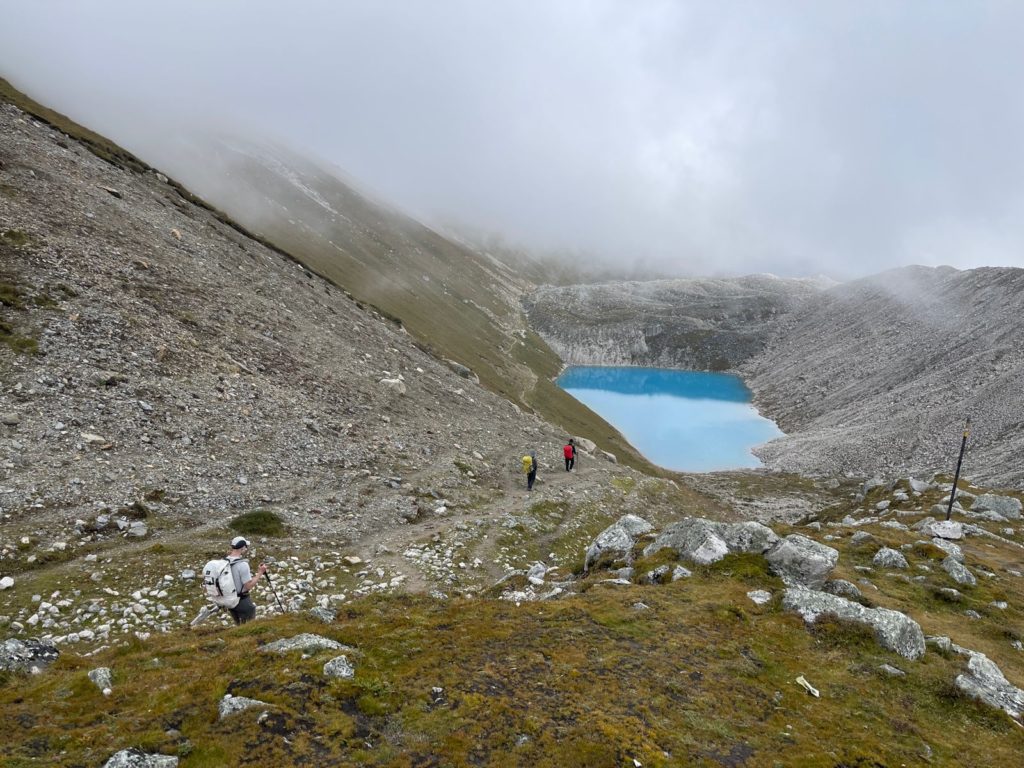 l
l
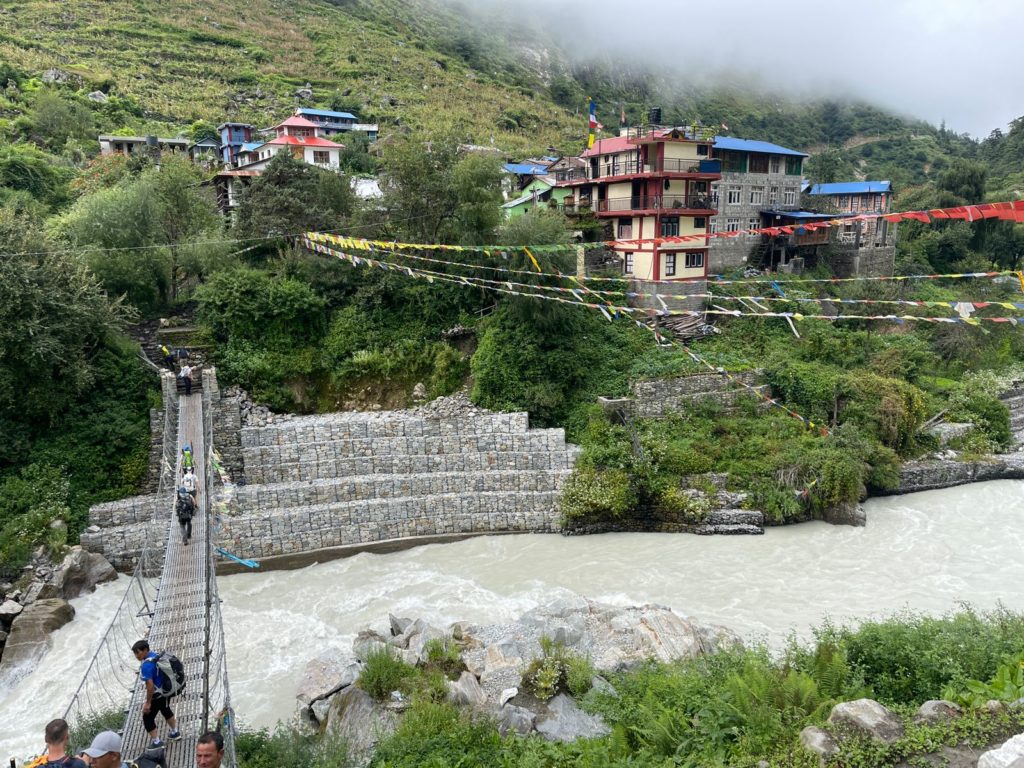
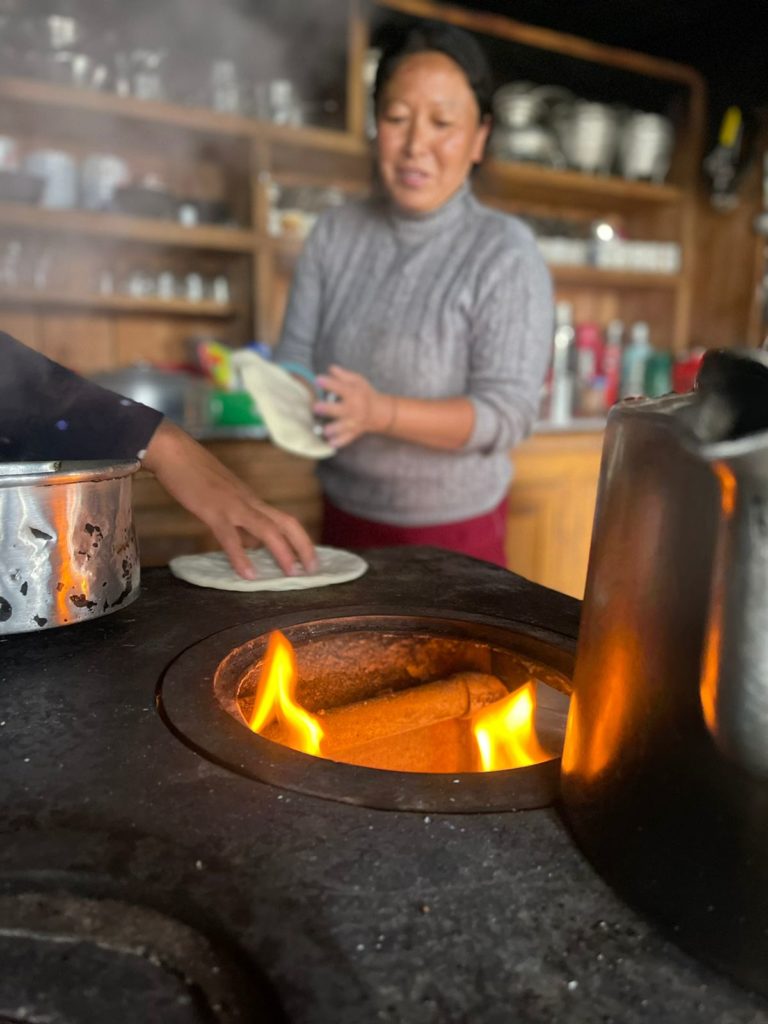
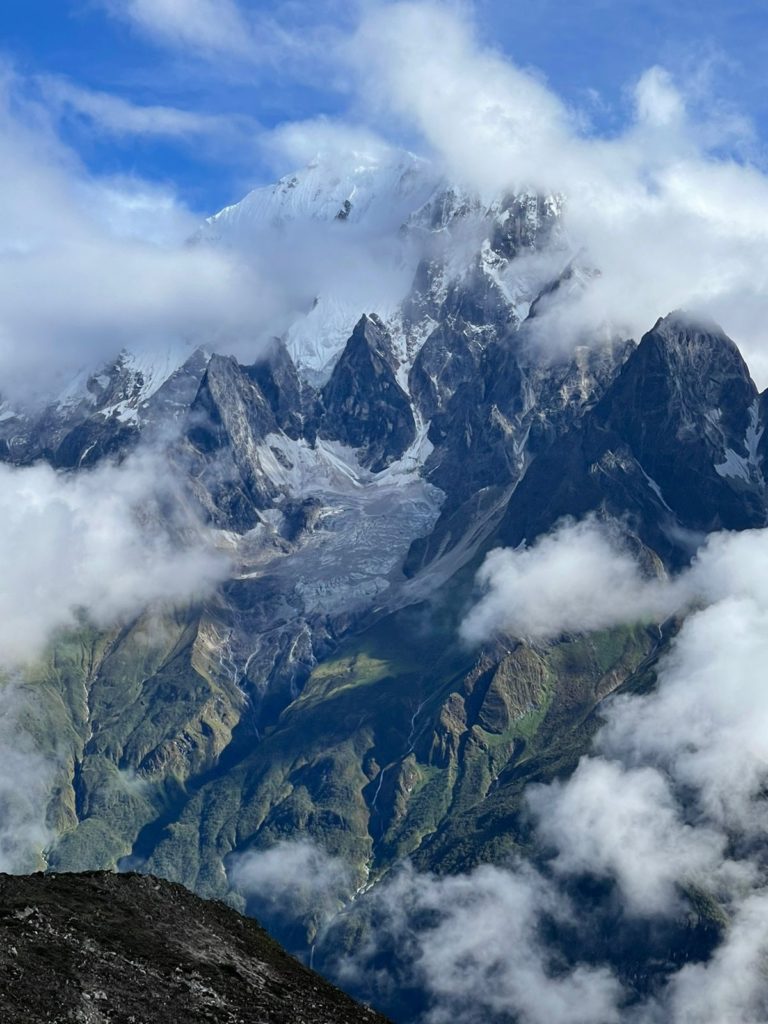
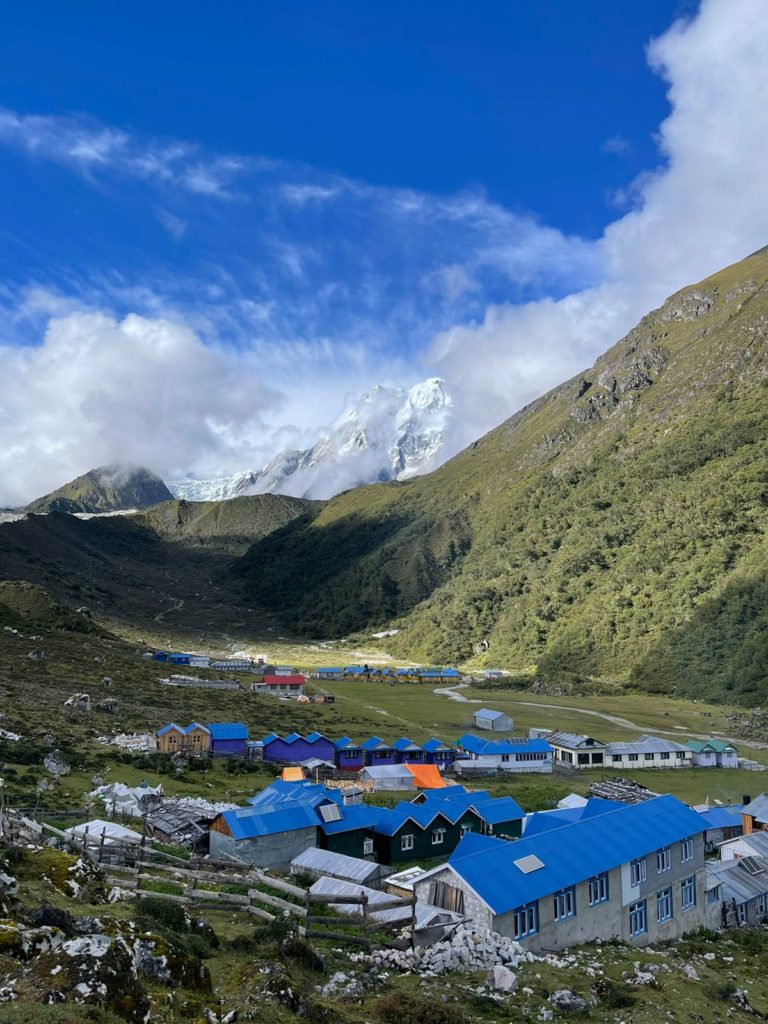
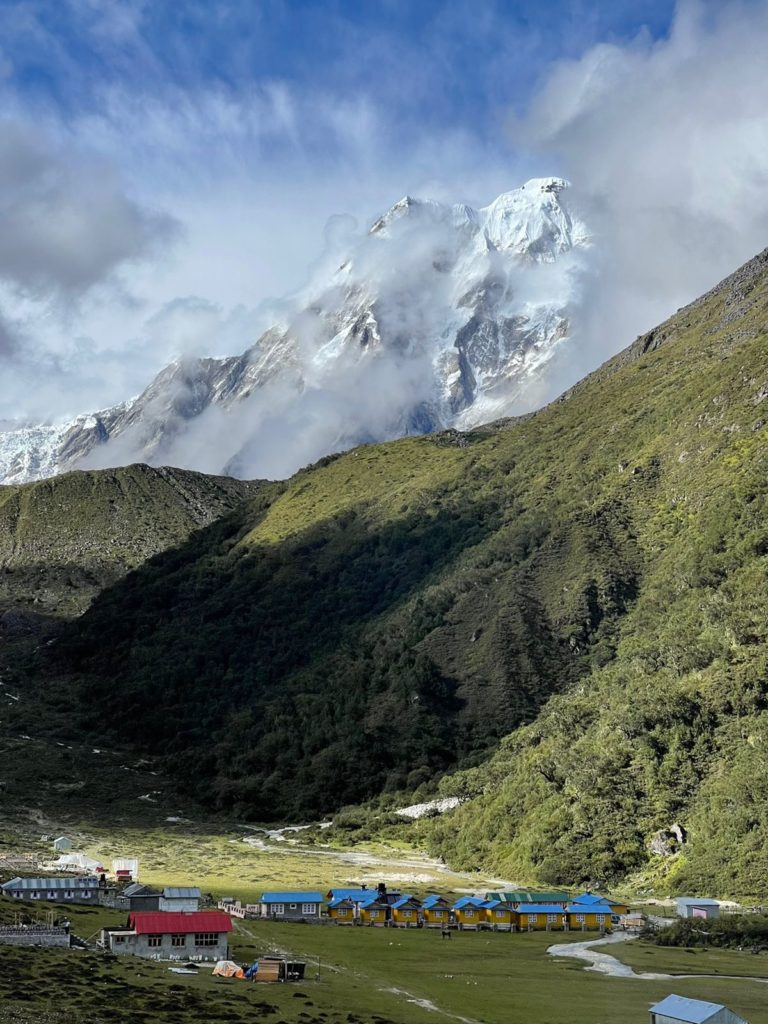
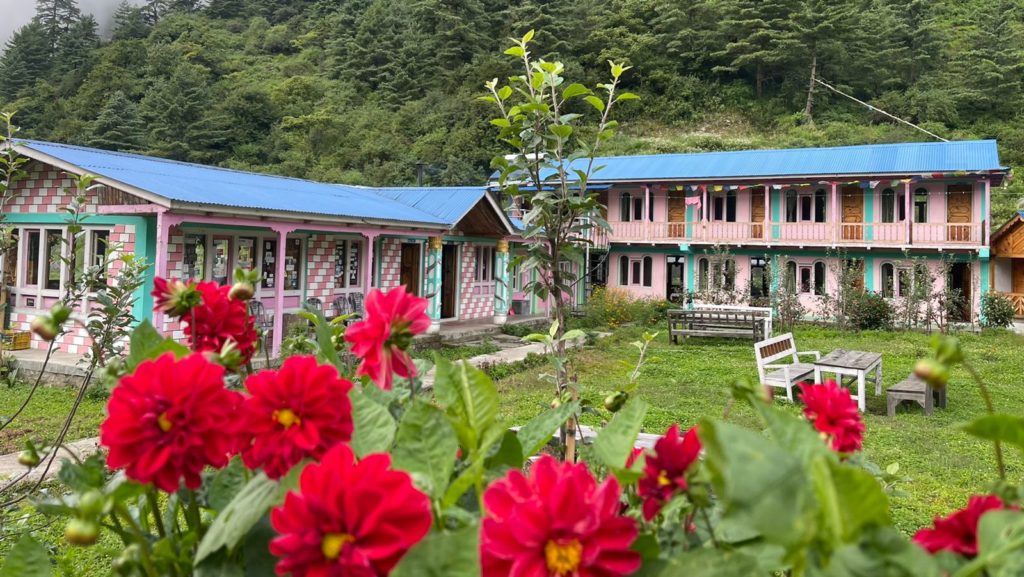
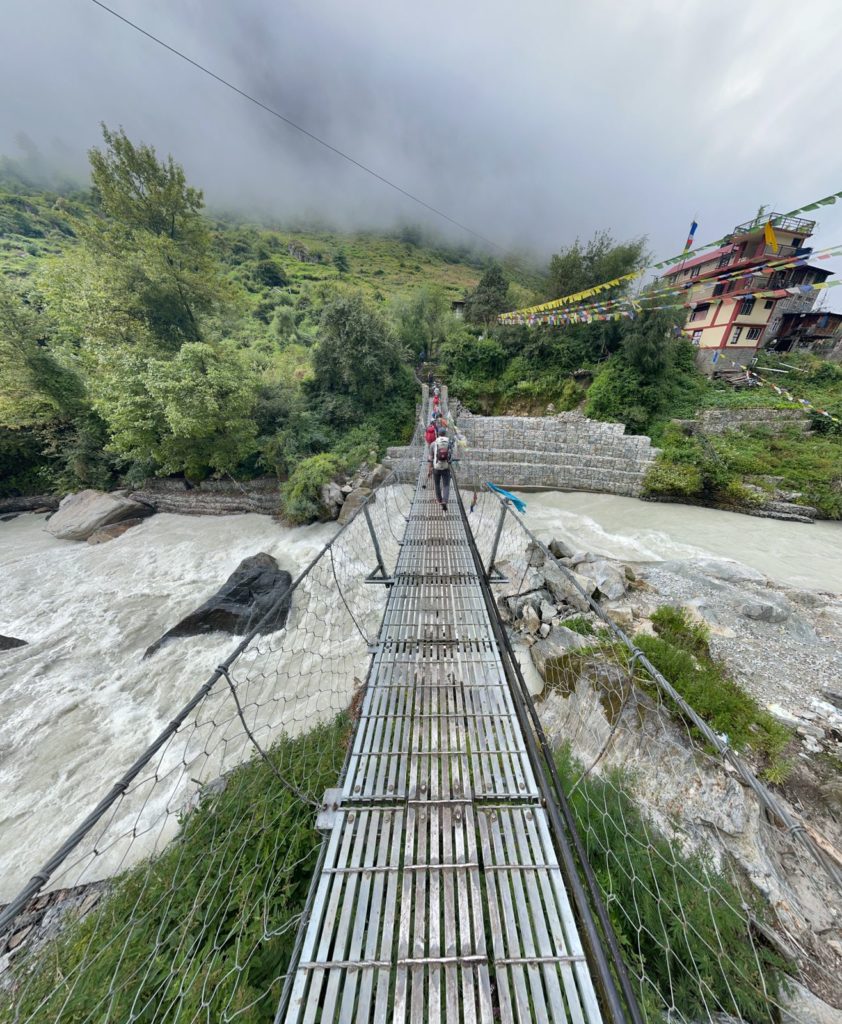
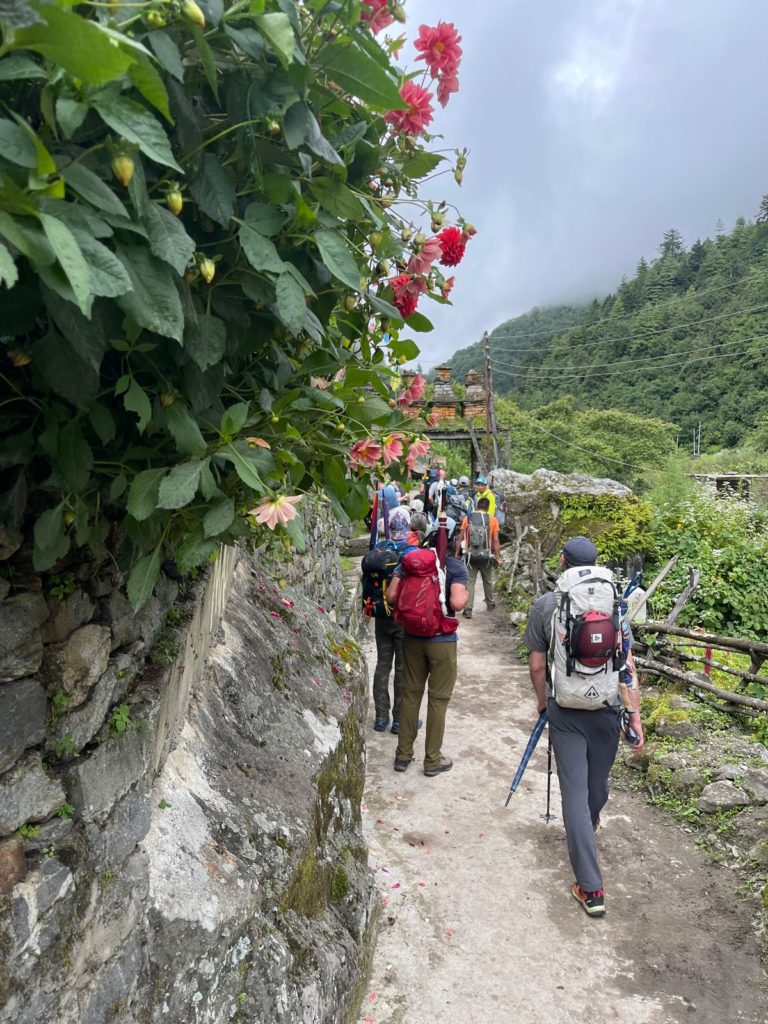
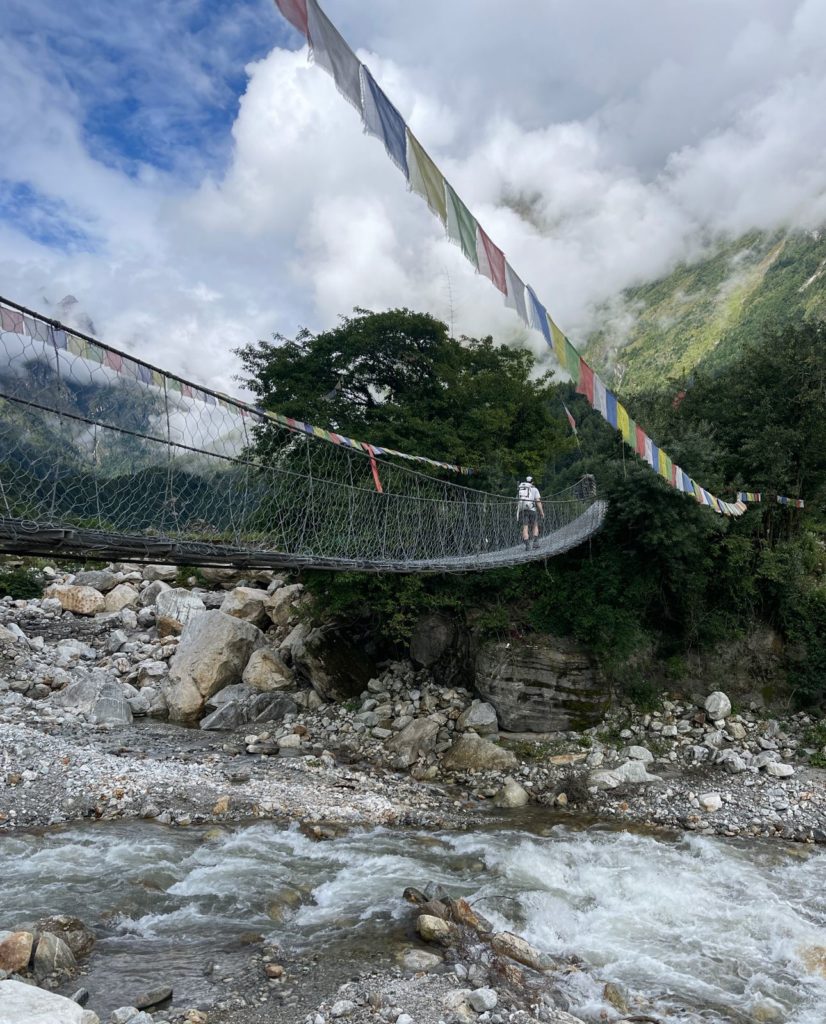
Manaslu Team on the Move
Our Manaslu 2022 team are well on their way to Base Camp and to begin their climb.
Meeting in Kathmandu, running through gear checks & guide briefings, yesterday they waved farewell to the hustle and bustle of the Capital and caught the bus to Besishar. Today they are back on board and heading to Dharapani.
From Dharapani they hit the trail and begin their trek into Base Camp. The team are excited to get moving toward the mountain after months of training and preparation.
Cheers
CTSS Team


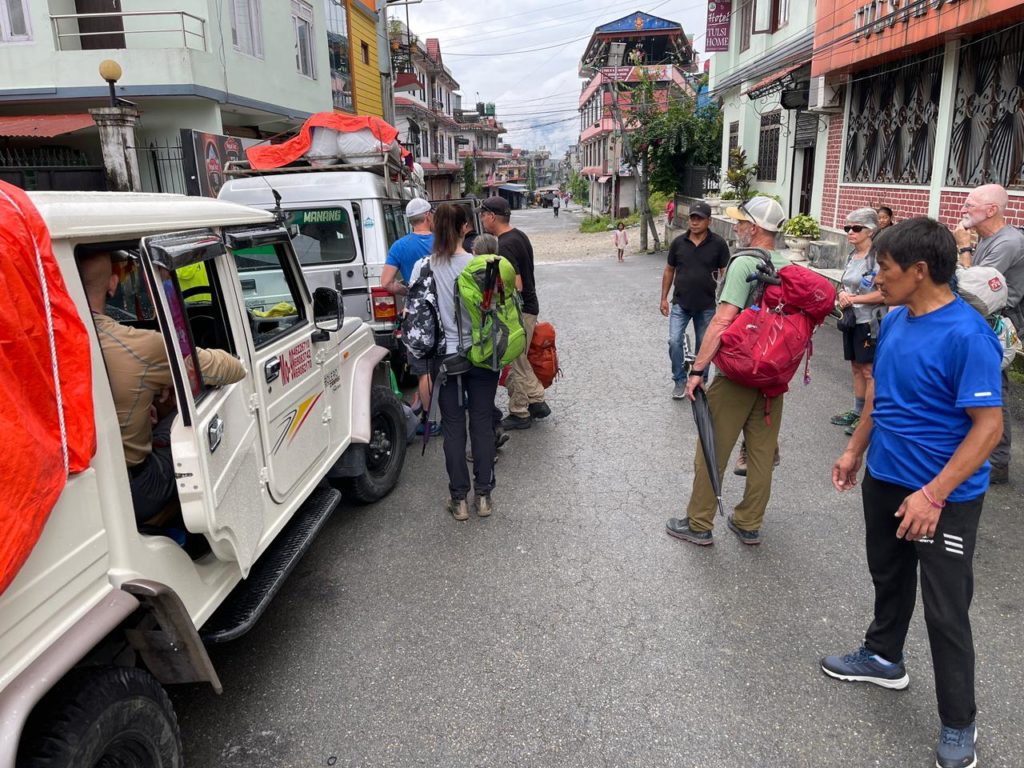
Kili Team Tops Out
Congratulations to our Kilimanjaro team who today stood on top of Uhuru Peak. 100% of the team topped out and stood on the highest point of Africa, at 19,340ft/5,895m.
Hearty congratulations to;
Doug Owen
Gray Owen
Erik Johnson
Caelyn Crosby
Bill Owen
Robert Smith
Nick Cuizo
Malvika Karunan
It looks chilly up there today! The team are now on descent near Millenium Camp where they will have a brief rest before coming down to Mweka their final camp on the mountain (after a huge 12-15hr day!) before exiting the National Park tomorrow and celebrating on safari!
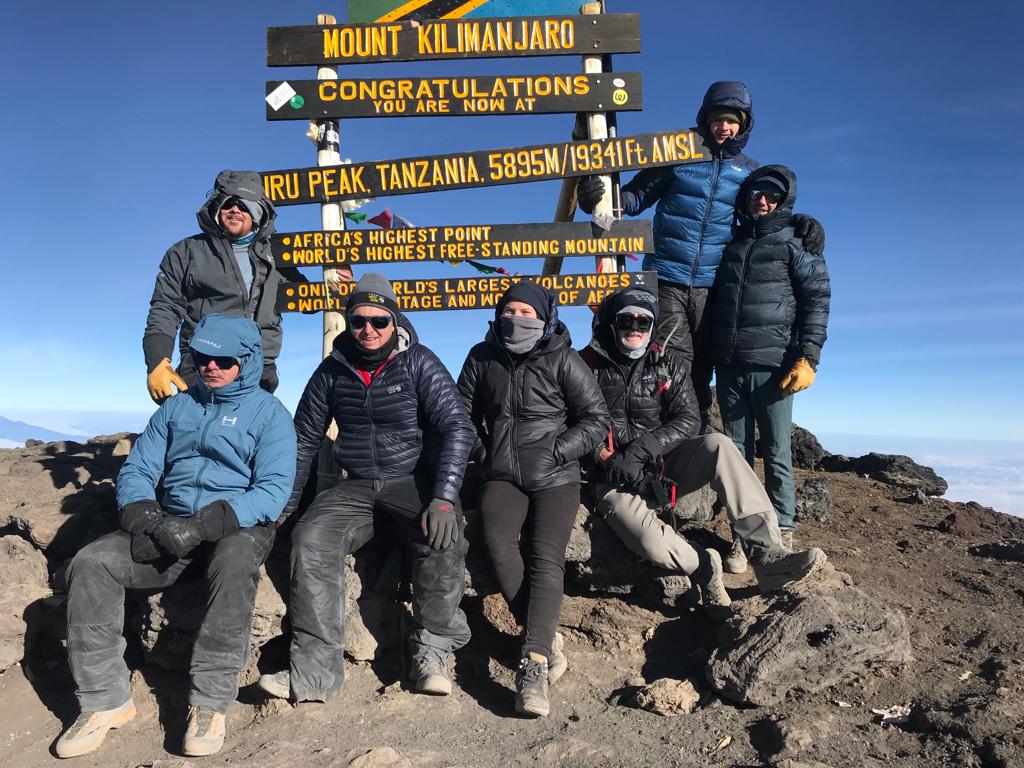
Kili Team Tackle Baranco Wall
Our Kilimanjaro team are doing great and enjoying some stunning weather. Today they tackled the Barranco Wall early in the day, which leads up precipitously up to the day’s high point (where they are rewarded with some more amazing Kilimanjaro views) before dropping down once again into Karanga Camp which is beneficial for their acclimatization. About a 5hour day experiencing the unique alpine desert environment.
From here they are in striking distance of the summit, tomorrow they’ll move up to Barafu Camp (High Camp), The word 'barafu' is the Swahili word for 'ice', which refers to the cold climate at this altitude before tackling the summit the following day.
Lead Guide Gerry reports the team are moving really well and having a great time.
Cheers
CTSS Team
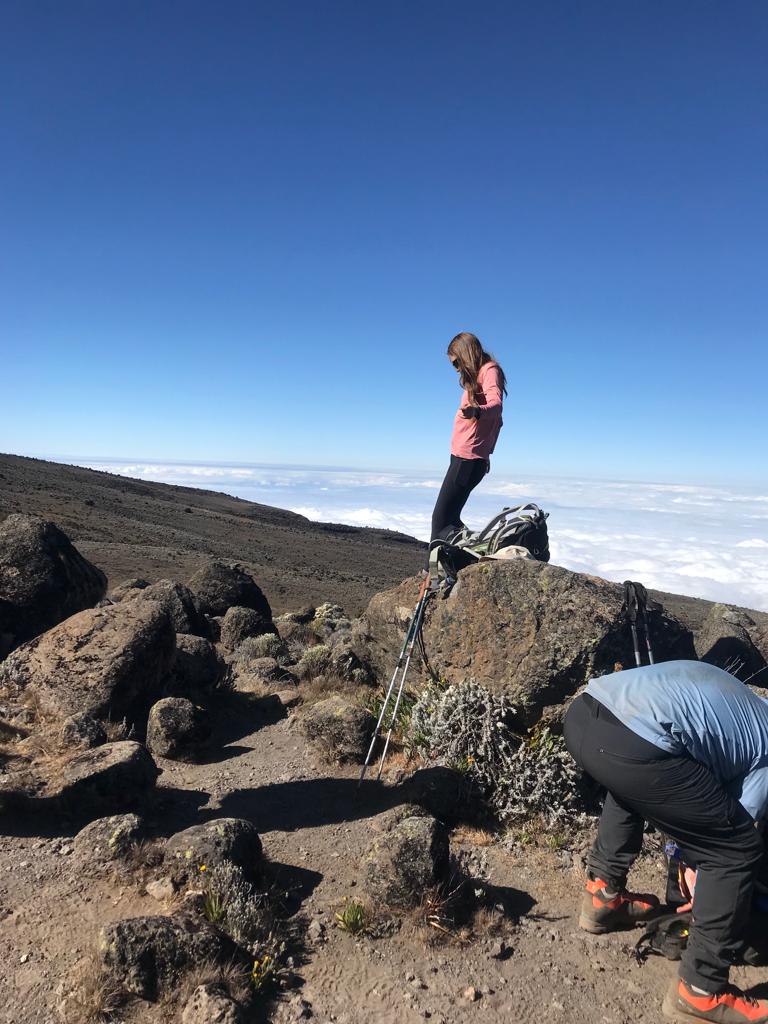
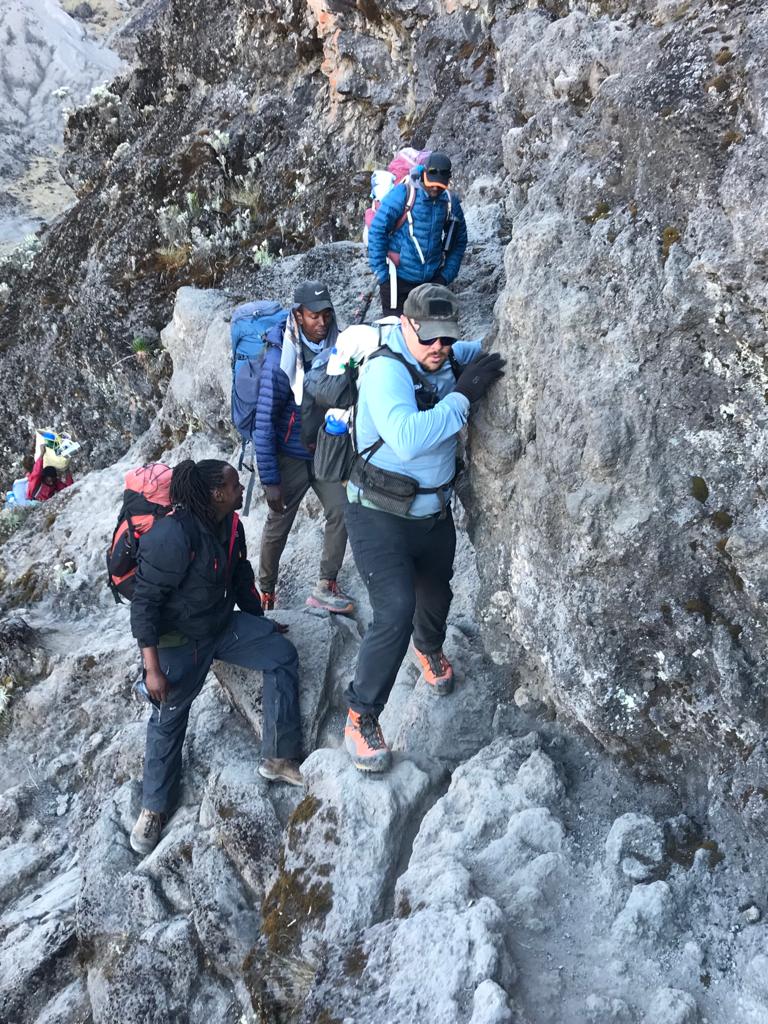
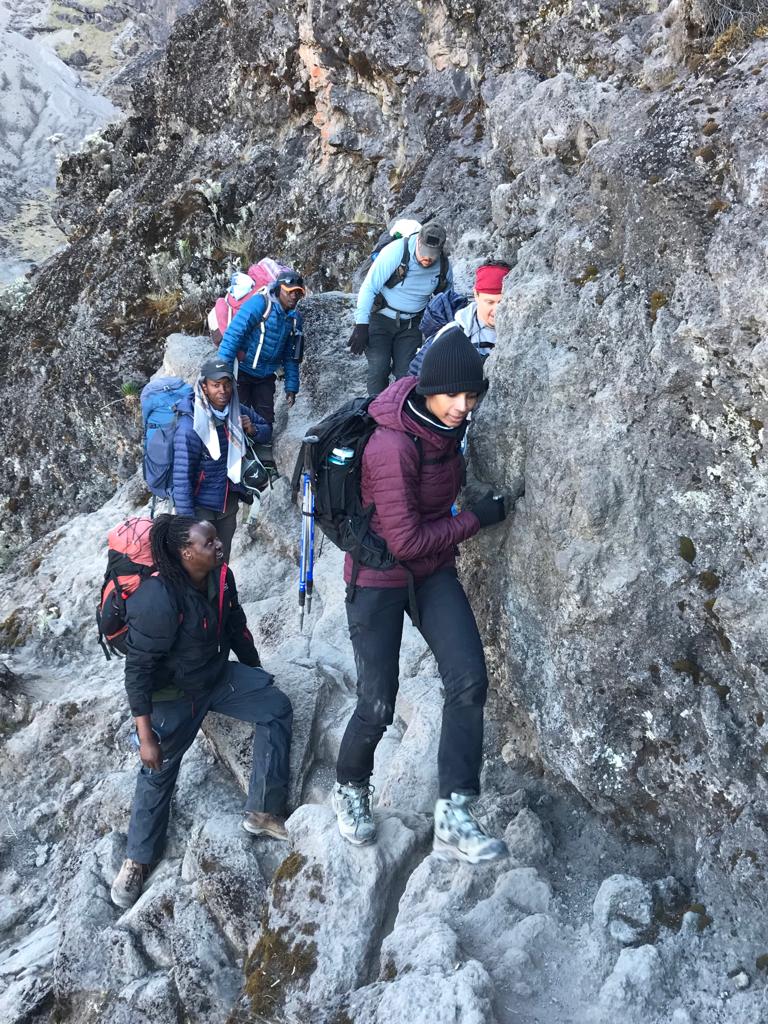
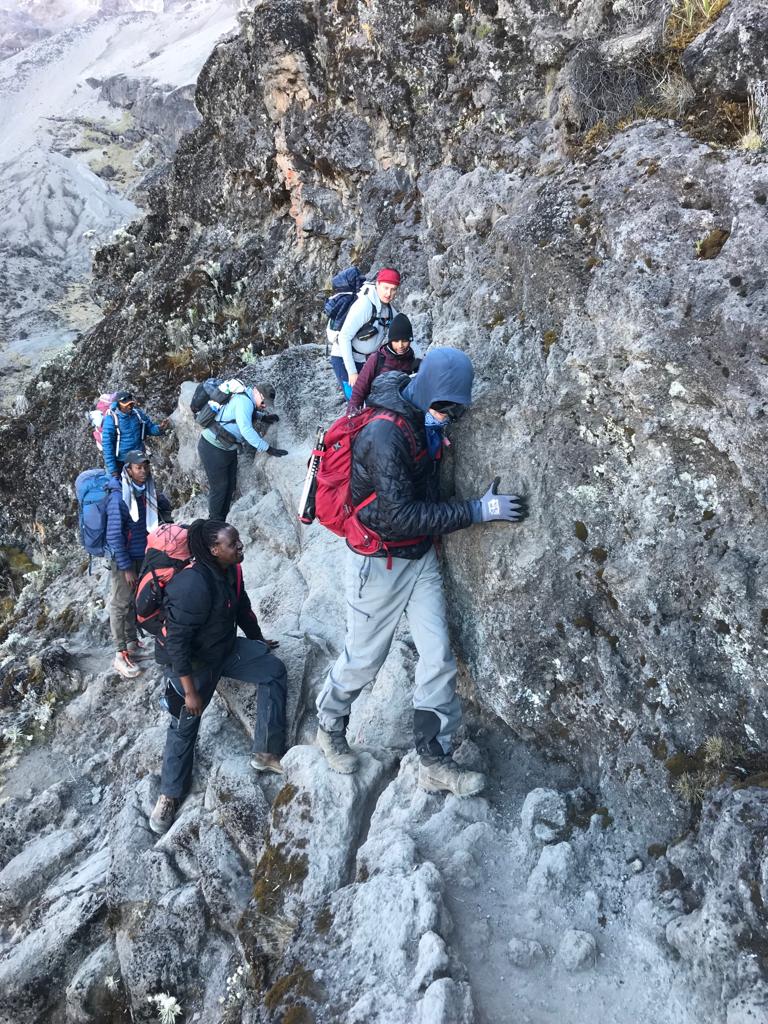
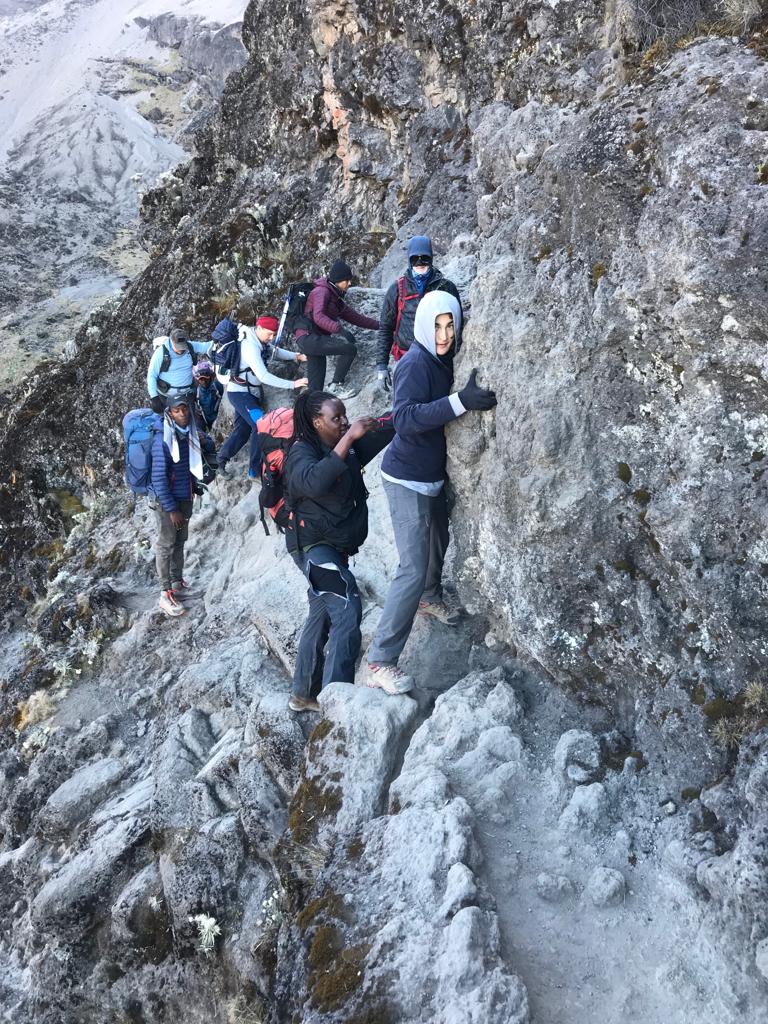
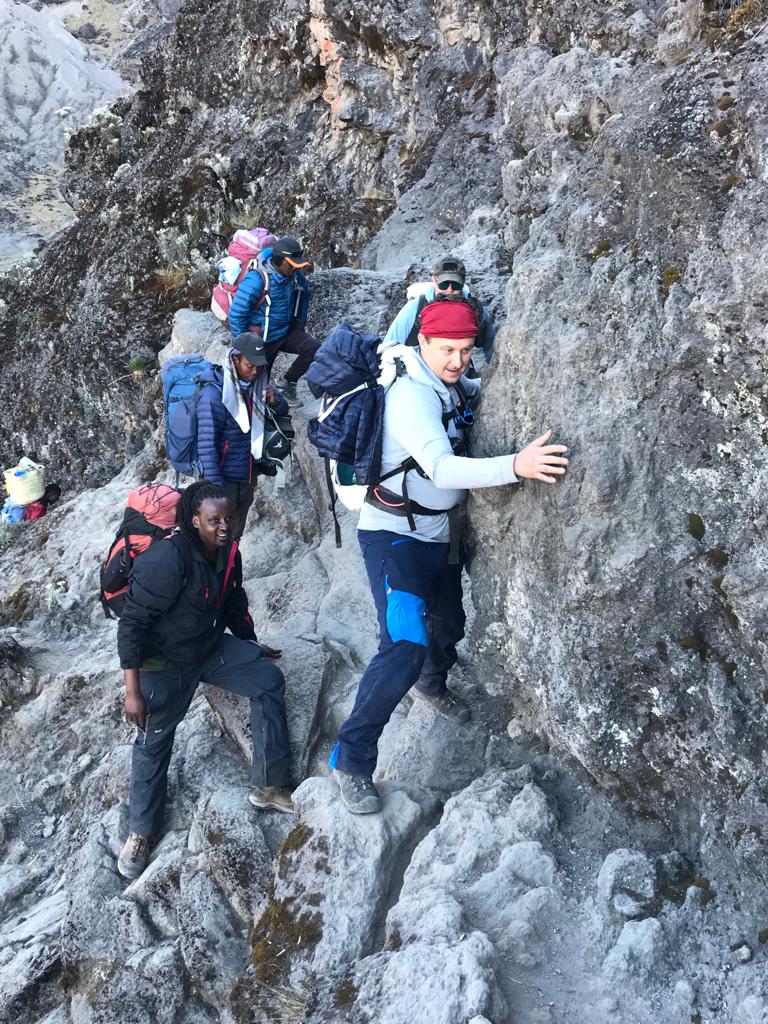
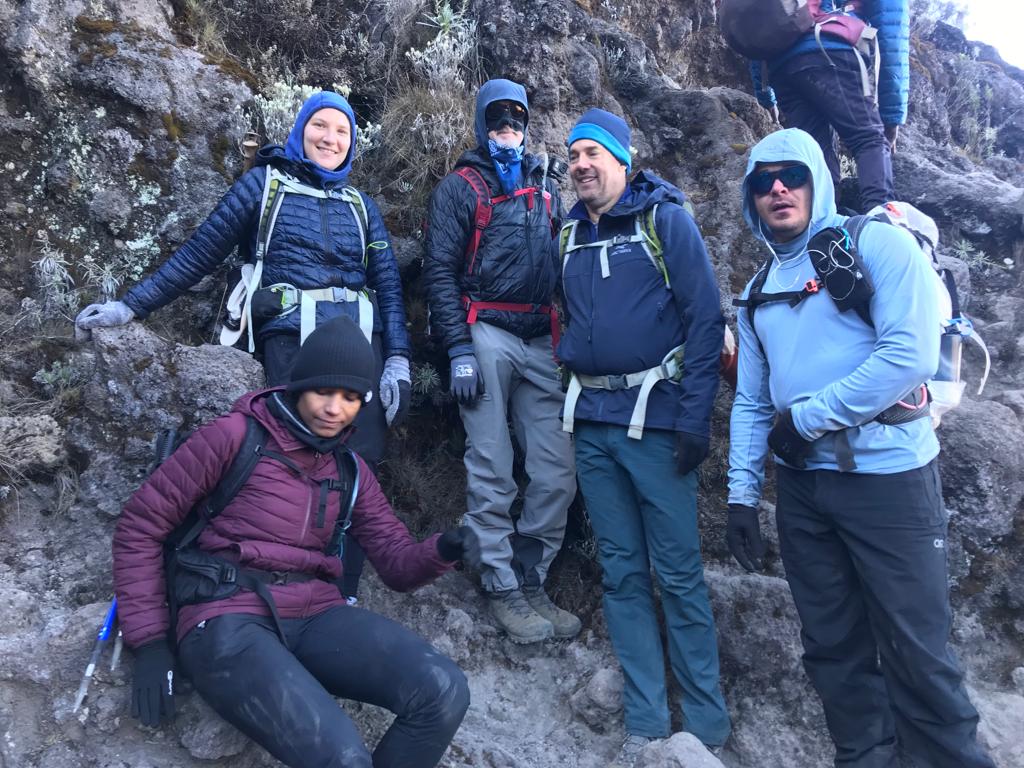
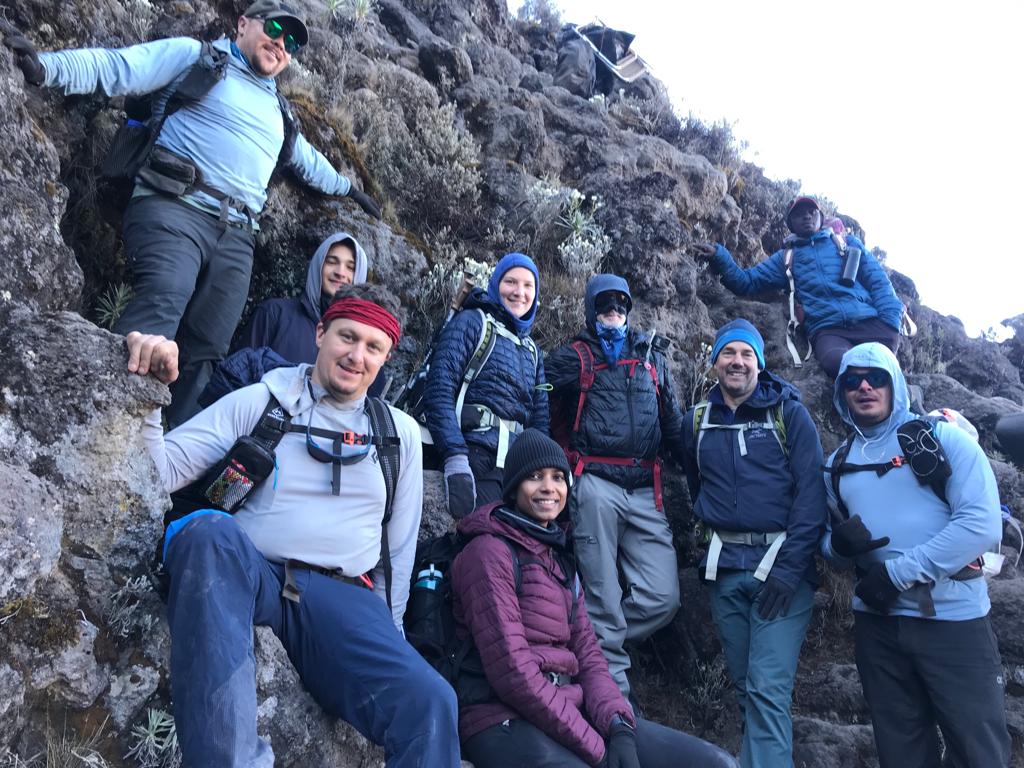
Kili Team Up to Barranco Camp
The Kili team rose early today for their 11km trek up to Barranco Camp.
A nice, challenging day today that took them up to the Lava Tower and the Shark’s Tooth rock formation at 4,600m and then dropping back down to sleep at Barranco Camp (3,900m) aiding in their acclimatization by reaching a new high point and then retreating to a lower altitude to rest.
Yesterday they came up from Machame Camp at (2,835m) to Shira Camp (3,850m) through the low alpine grasslands. Shira Camp has some pretty spectacular views of Mount Meru in the East and Kibo in the North West so we’ll be looking forward to seeing their photos.
All well from Kili - the team are strong and happy!
Cheers
CTSS Team
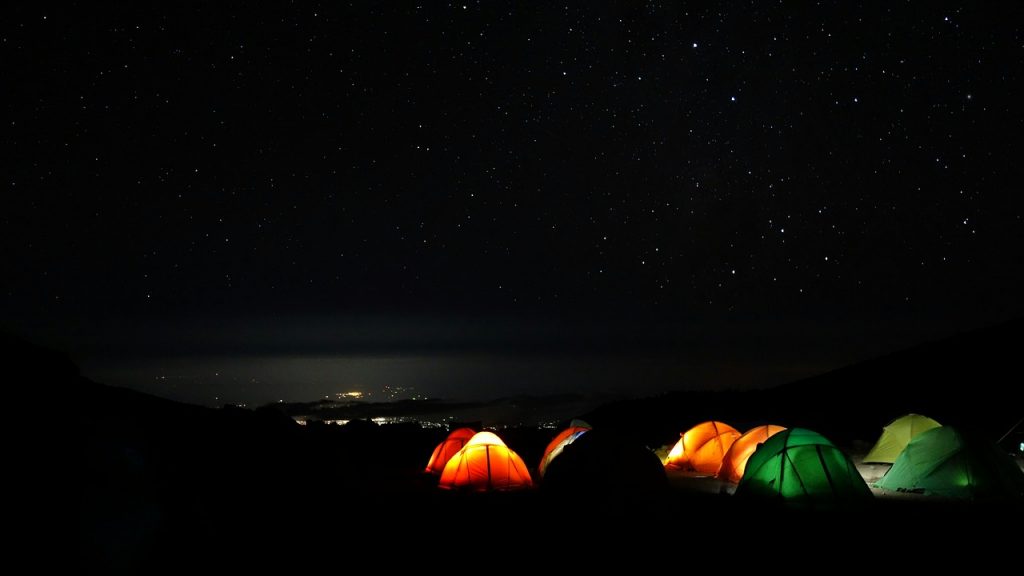
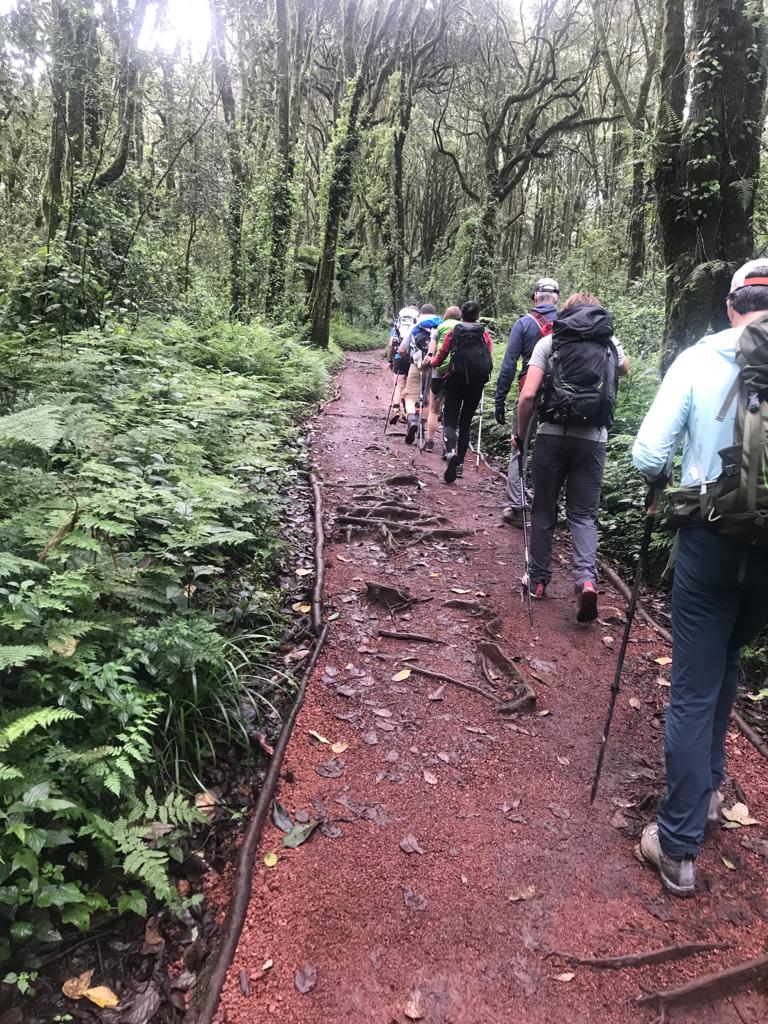
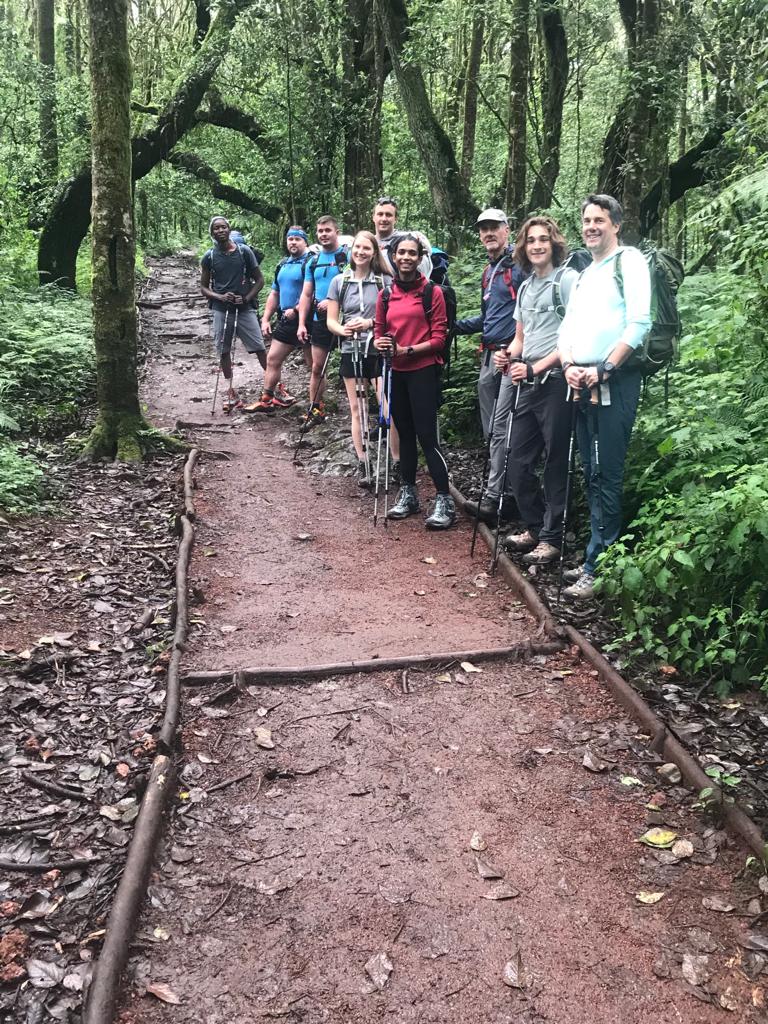
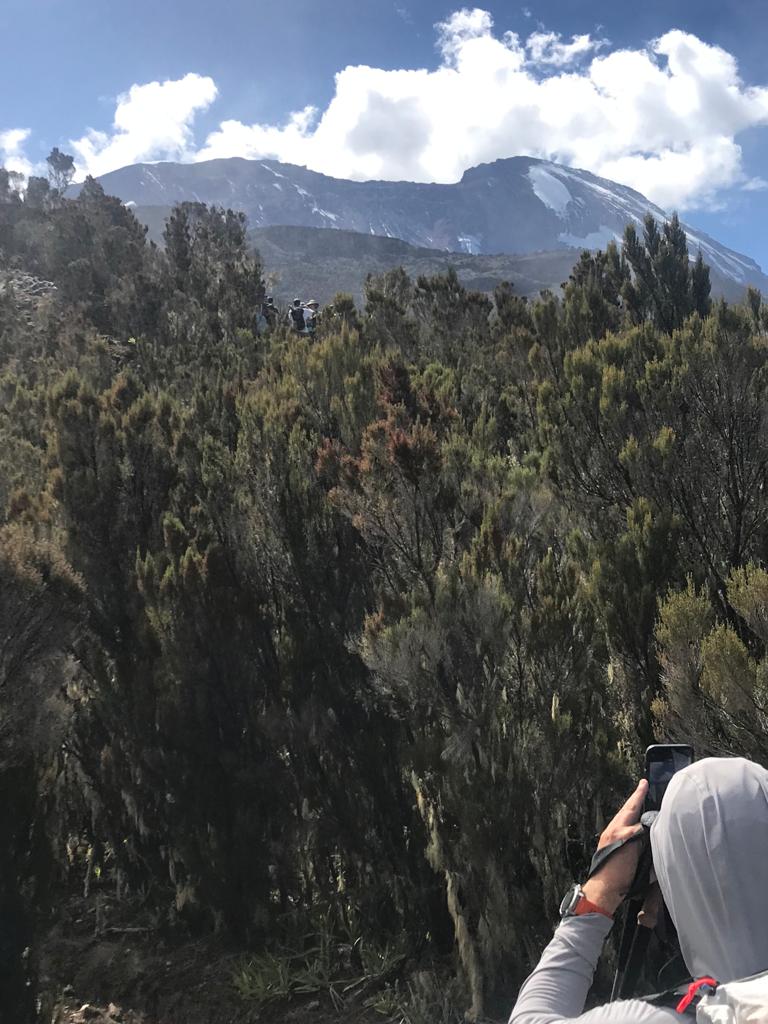
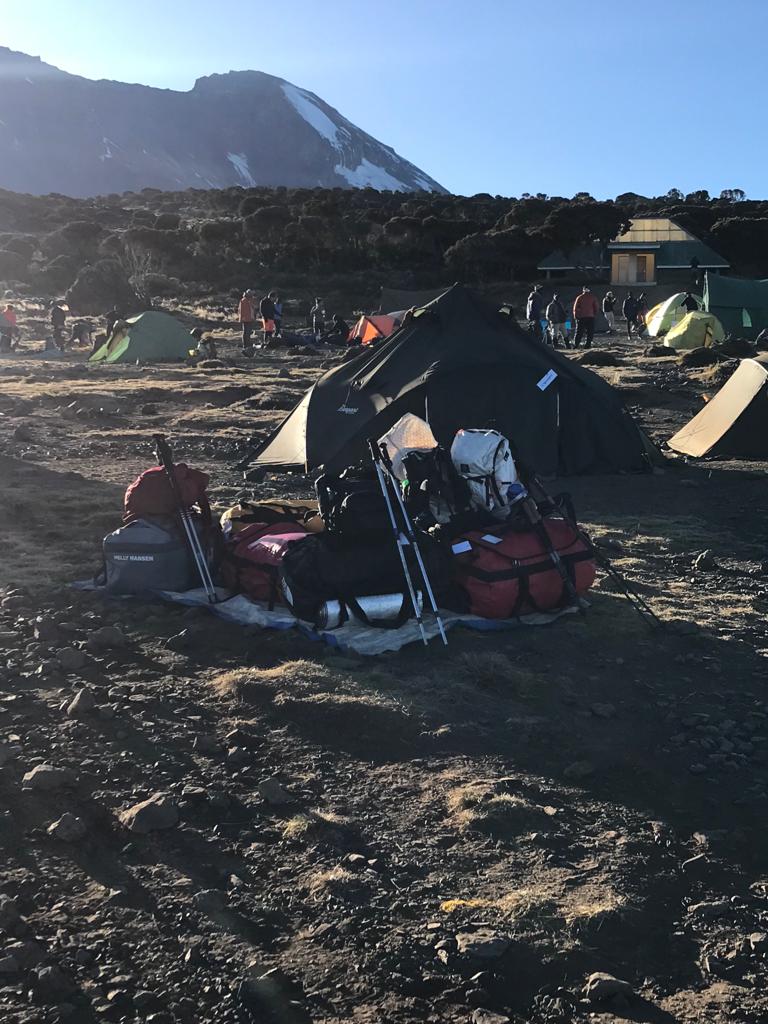
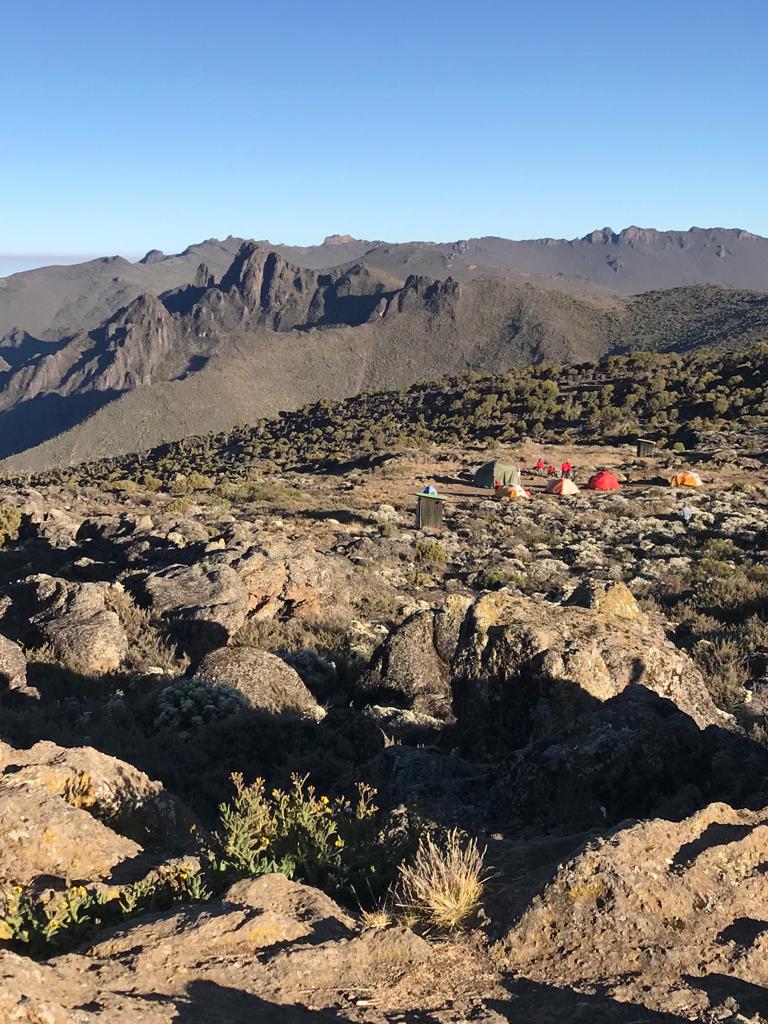
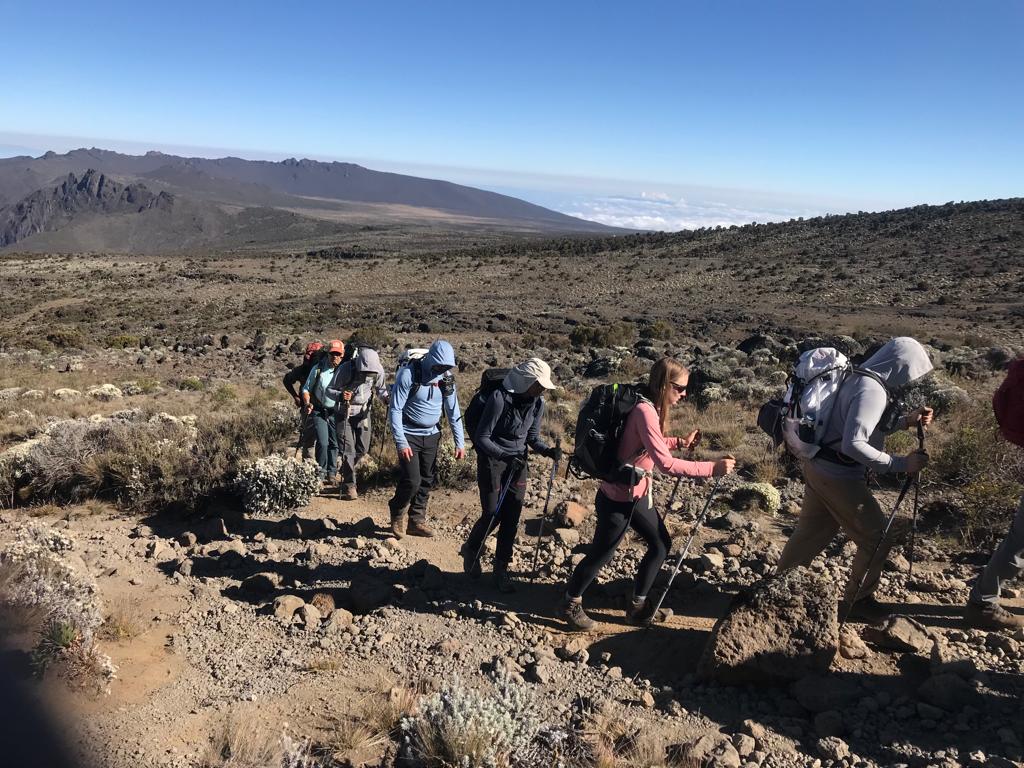
Ecuador Team Wraps Up
The CTSS July Ecuador Volcanoes is wrapping up!
The team is now all back down and out of the mountains and many of the crew are already on their way home. After great success on Cotopaxi last week the final climb of the trip, Chimborazo, proved to hold more challenging conditions. Waking very early yesterday morning the team got sorted for their climb. Despite leaving early and putting in a strong effort snow conditions at higher elevations ended up not being safe enough to give the team another summit. After making the call to turn around the team descended through high camp and all the way back to the jeeps. A few hours drive time put them back in Quito resting and celebrating a fantastic expedition.
It was exciting to have such a great crew of climbers exploring Ecuador over the last two weeks. With another great trip in the bag we're already turning our eyes towards the 2022 fall Ecuador expedition November 5-15. Is Ecuador your next expedition? Check out the trip online or email info@climbingthesevensummits.com for more details or to sign up.
Congratulations to our Ecuador climbers on a fantastic expedition!!!
Cheers,
CTSS Team
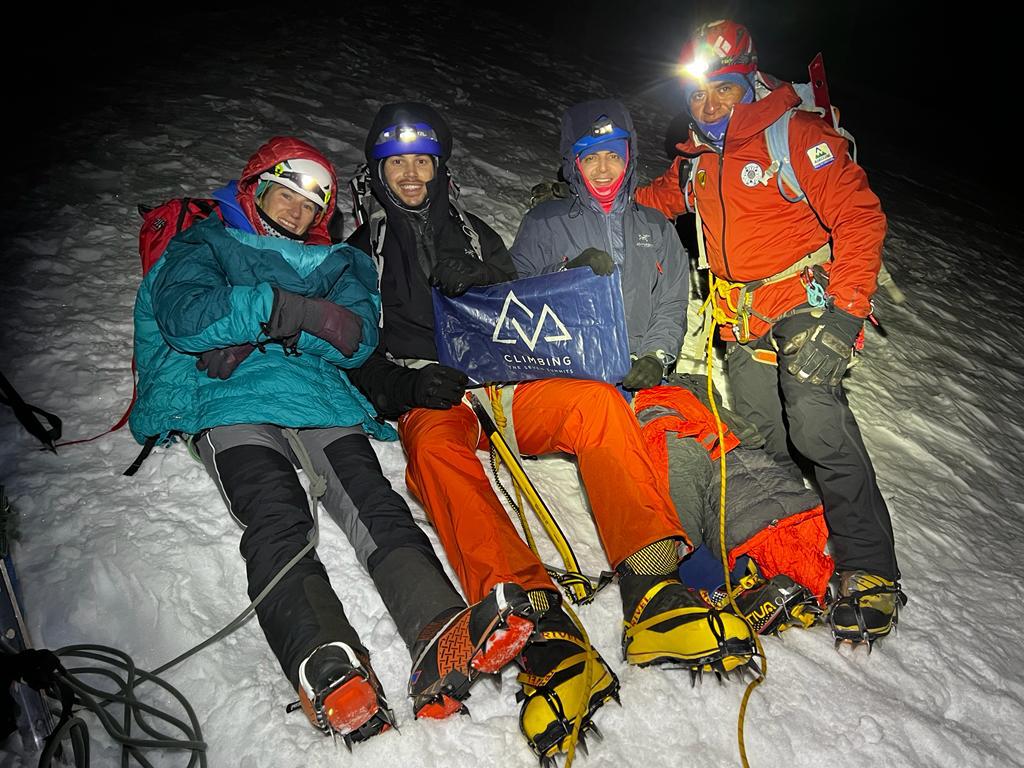
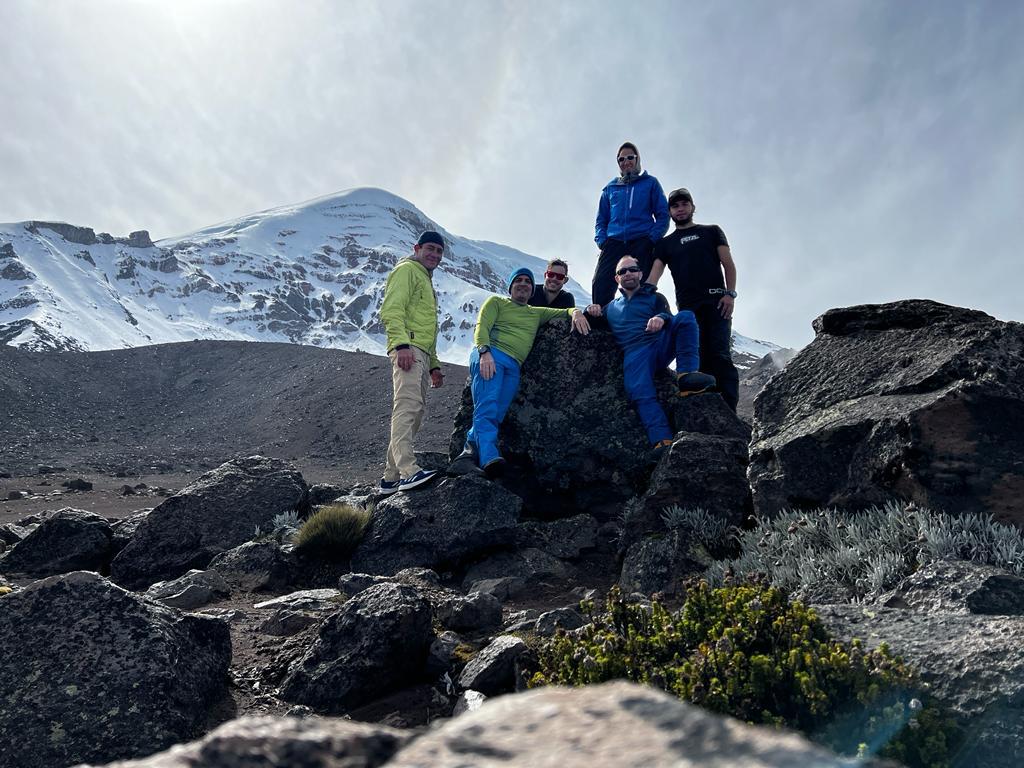
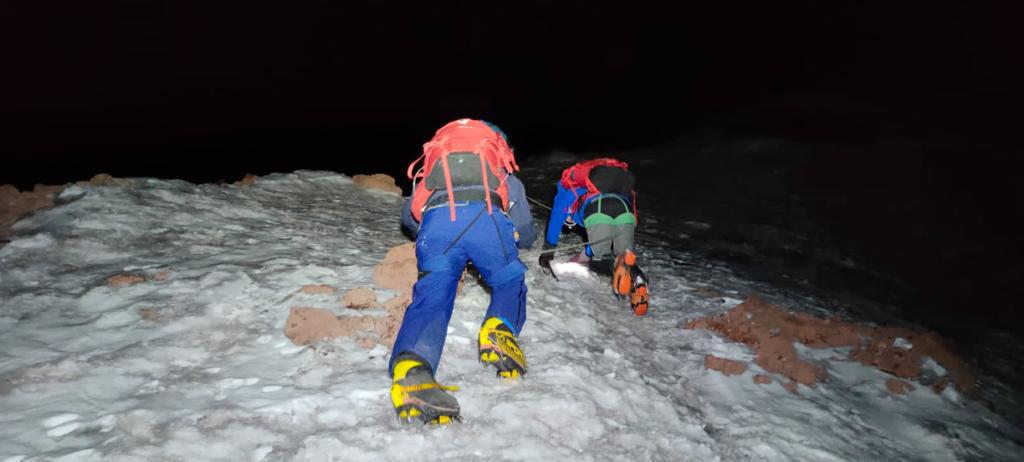
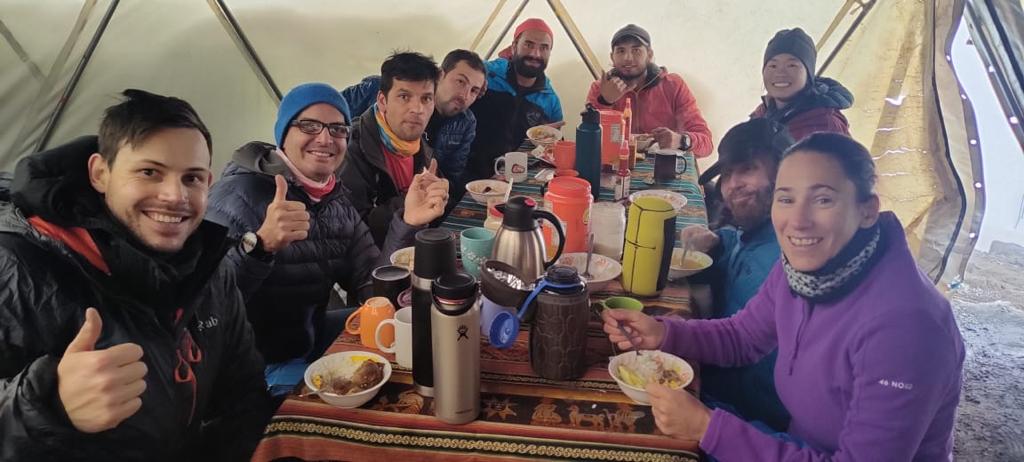
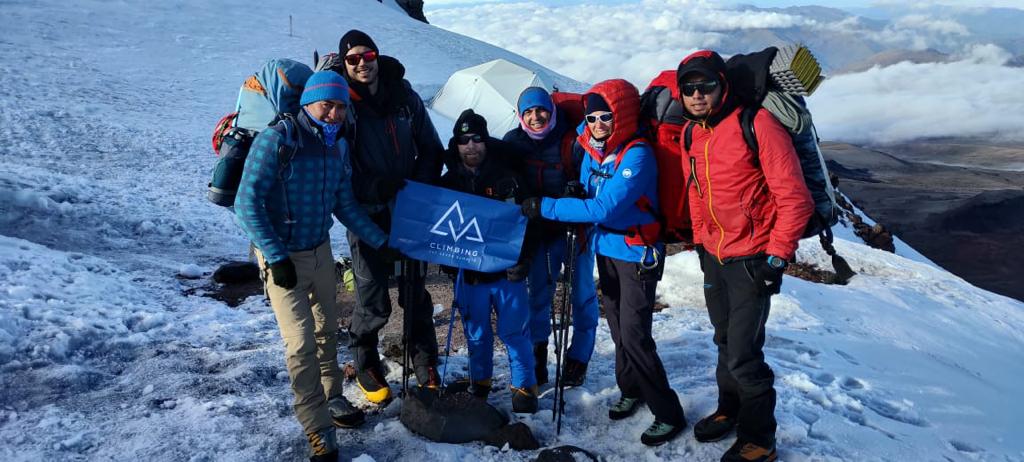
100% Cotopaxi Summits
100% Summit Success!!!
Congratulations to our Ecuador team! Despite some tough weather including wind and low visibility our team in Ecuador had an excellent climb of Cotopaxi today. Starting early this morning they pushed up from the refuge through the clouds for a successful summit. It is always exciting to have the entire team on top, well done!
The team has now descended back to the Hut, packed up their gear and are all resting by the hot springs in Papallacta a few hours drive from Cotopaxi national park. After days of dealing with tough weather you cant ask for a better celebration of a successful summit.
After resting in Papallacta some of the team will be flying home tomorrow while our Chimborazo extension climbers ramp back into climbing mode and head back to the mountains.
Chimborazo (20,549 ft) is the highest volcano in Ecuador as well as one of Ecuador's most coveted climbing objectives. We're hoping for great weather as our team moves to high camp and eyes a summit bid over the next two days.
Strong work team and best of luck on Chimborazo!
Cheers,
CTSS Team
